Dear Parents,
Now that all of our students have long been settled into the school year, they are comfortably moving about the work cycles with countless options of works to choose from. Everyone is staying busy in their own way, enjoying the freedom (within limits of our ground rules) of our beautiful Montessori environment.
Daily Lessons
Thank you so much for everyone’s good attendance and prompt arrival times in our Primary Studio to ensure that your children are recieving plenty of lessons. All parents have been so helpful in practicing the “kiss and go” approach, keeping our classroom free of distractions during our morning check-ins and lessons during circle times. Your children continue to consume new and interesting information about their environment and the world they live in, and we are excited to share with you some of the daily lessons offered during this fall season.

Seasonal Works
We teachers enjoy getting creative during the different seasons as we collect miscellaneous objects that offer various textures, shapes, and scents to create discovery baskets and exploratory works. This Autumn, our students are drawn to the colorful fall items mixed in different subject areas throughout the studio.

Below: More Examples of Festive Fall Works.
Montessori Sensorial Works. Photo examples: Color Grading
Now that our students know their basic colors, they are ready to start differentiating the countless shades of colors through color grading. It takes a good set of eyes to squint and see the color differences in this material as children learn to grade colors from dark to light and vice versa. This is a prerequisite to many art lessons that will be introduced in our winter season, such as an upcoming lesson about tinting a color by adding a little bit of white paint to lighten the pigment.

Botany. Photo examples: Parts of a Flower
As we explore the botany area, we present a variety of Montessori nomenclature cards, or as some people call, “3 part cards,” to demonstrate how to match imagery with words. In the Montessori Method, we teach the technical terms to parts of plants, and at this time of the year our students are especially interested in the parts of trees and leaves, and how plants grow. Many children love working with the wooden puzzles that match the imagery to the nomenclature cards.
Food Groups and Healthy Eating
Additional topics in the botany area include lessons about the growth of fruits and vegetables, as well as eating a variety of foods. We often hear our students conversing about their food during lunch time, so we explain that every family has different diets and lifestyle choices with foods, and we must respect each other’s choices. We discuss mindful eating and having an appreciation for healthy foods, especially for the lunches and meals that parents prepare for their children. Below is an example of a lesson about healthy eating, exercise, and food preparation. During the work cycle, children love to make picnic meals for each other with our “pretend food.”
Language Lessons. Beginning Sounds.

Hopefully everyone had a chance to go over the information I sent home a while ago about how we teach letters in the Montessori Classroom. We continue to practice beginning sounds with a variety of hands-on sensorial material in our language area. During lessons, we are very narrative when presenting letter sounds as our students repeat the sounds after us. As we sound out the letters, the children join in as we touch our throats, feel our breath with our hands, and observe the motions of our mouths to differentiate sounds by vibrations, wind or heat from our breath, the shape our lips make, and so on.
Lessons about the Earth. Grasping the Wonder of Science that we Live on a Rotating Sphere Orbiting around the Sun.

We love giving lessons about the natural world in which we live in, and Montessori materials offer plenty of exploratory activities for children to start thinking about the wonders of our universe. We begin by talking about the earth through the exploration of globes – first by comparing land and water mass, followed by a Montessori wooden puzzle lesson on the two hemispheres. We introduce the continents, and eventually look closer into countries, states, cities, and so on. We show diagrams of the earth’s orbit around the sun, along with the surrounding planets, and we talk about the force of gravity. While some of these topics might be tough to comprehend at such a young age, the ideas spark curiosity as children explore through visuals and conversation.

Lesson on the Montessori Celebration of Life. Explanation on the Earth’s Orbit around the Sun, including Months, Seasons, and Time Passing.

It is our goal to have a “Celebration of Life” for each and every child in our Studio at some point during the school year to celebrate these early years of life. To better appreciate the celebrations, we have given lessons to your little ones on days, months, seasons, and years as we explain about time passing during the earth’s orbit around the sun. We look forward to having a celebration for your child in the near future, if we haven’t already. Our students love having their own special day, but they also love to learn about each other’s journey in life.
Lessons on Parent Appreciation. Photo Examples: Lessons on Household Bills & How Money is Earned and Distributed.
The time is now to teach your children to show respect for all you do. When your child has a better sense of your work day, the efforts you make in providing for your child, and all you do for them, you may find that they start listening better. In the Montessori philosophy, we believe that children will become more patient, empathetic, thankful, and thoughtful when they are taught at an early age to better understand the world around them – so why not share about your work day?
During this lesson, I show stock photography of parents working at different types of jobs, parents at home taking care of their house and kids, and images that represent general household costs such as electric, gas, food, clothing, etc. I follow an act during the presentation, pretending as if I just got paid (in play money bills) for working hard at my job, explaining that before I can even bother to consider spending money on recreational activities or toys for my child, I need to distribute the money by paying off all of the bills and payments. I distribute handfuls of $20 bills and $100 bills for house payments, food, gas money, etc. In the end, I have only a small handful of money, and I might say something along the lines of, “well, maybe we can go out to eat this weekend,” or “maybe we can get just one toy or book this month… but then again, my child needs some new shoes…” A discussion opens up and children begin thinking of other potential needs such as doctors’ visits, household repairs, etc. While I realize everyone’s financial situation is different, we want our students to start learning that they can’t take advantage and get whatever they want all of the time. And this may come as a new concept to our little ones, but it’s time to start teaching that the world doesn’t revolve around them!

I also get into the topic of how not listening to our parents and making more work for them through defiance can lead to a stressful and tiring work day to follow. I show images of tired parents with children making messes, images of children who appear too stubborn to go to bed on time, pictures of adults falling asleep on the job, and images of parents who appear uninterested in doing anything fun with their child after school, since they are too exhausted from dealing with bad behavior. We talk about how sleep is essential for focus and more productive days. We also talk about how we (children) can help by independently playing sometimes, so that our parents get a chance to catch up with household work or better yet, you the parent can get a chance to do something for yourself on occasion. I ask questions to get the students to share input on how we can be good listeners and contribute to taking care of the house we live in, so that we can make the best of our days.

This is a lesson I like to give periodically throughout the school year as I change up the story lines and money distributions. I find that children are genuinely interested in what parents are doing behind-the-scenes. Many are also quick to say, “I don’t do that!” when they see a photo of a child making a huge mess with their toys, and whether they are being honest with me or not, their reactions are priceless as they sit up a little straighter to tune in. Our students clearly want to feel responsible and helpful to their families, and while they might not have it all together in the heat of the moment, the more we share with them when they are in a peaceful and mindful state, the more you will begin to see patience and improvement.

Feeling Stressed in the World of Parenting?
As teachers, we want to help you in gaining the respect you deserve, so if you find that your child is “running the show” all of the time at home, it’s time to get in touch and try to find some different approaches so that you aren’t pulling your hair out all of the time. Your life, needs, and dreams still matter, and it takes hard work to keep up with everything. Don’t give up by giving in to defiant and demanding behavior from your children. They will have a better respect for you, especially in later years when they recognize that you are still a strong individual making time for your own needs, interests and hobbies. One day, your children will be adults, coming to you for advice – and they wouldn’t be asking you for advice if they didn’t respect your choice of living. Just some food for thought.
If you’re feeling exhausted lately because of behavioral issues with your child, take some time together with your spouse one night after the kids are in bed, perhaps over some dessert or a glass of wine, and watch these short videos below that can help reset your parenting perspectives. And if things are going well, it never hurts to have some refreshers and new perspectives.
As parents, it takes a team effort, and that means no “good cop/bad cop.” One of the first steps for healthy parenting is getting on the same page with each other when it comes to parenting and discipline. For more information on Montessori practice in the home, go to the dropdown menu on the”Extra Extra” section and check out Montessori Parenting Tips.
Anyway, I know I have kept you long enough and you would just like to get to the good stuff, i.e., photos of your sweet kids! So I will just share a few more images of lessons and you can ask your child to tell you more about what is going on.




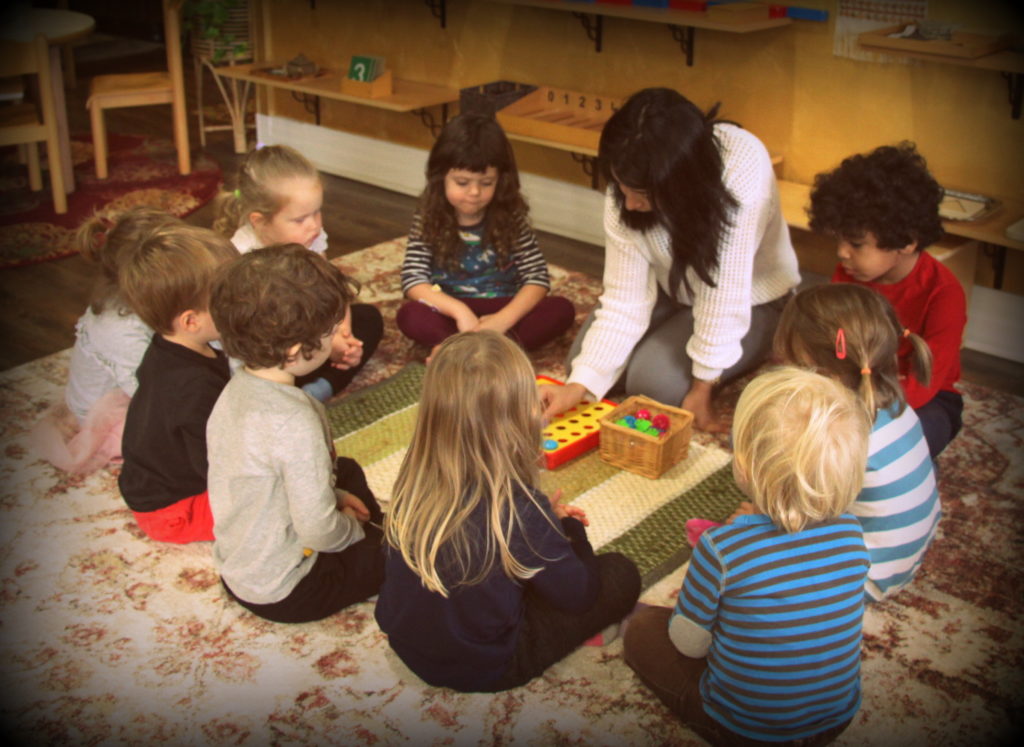
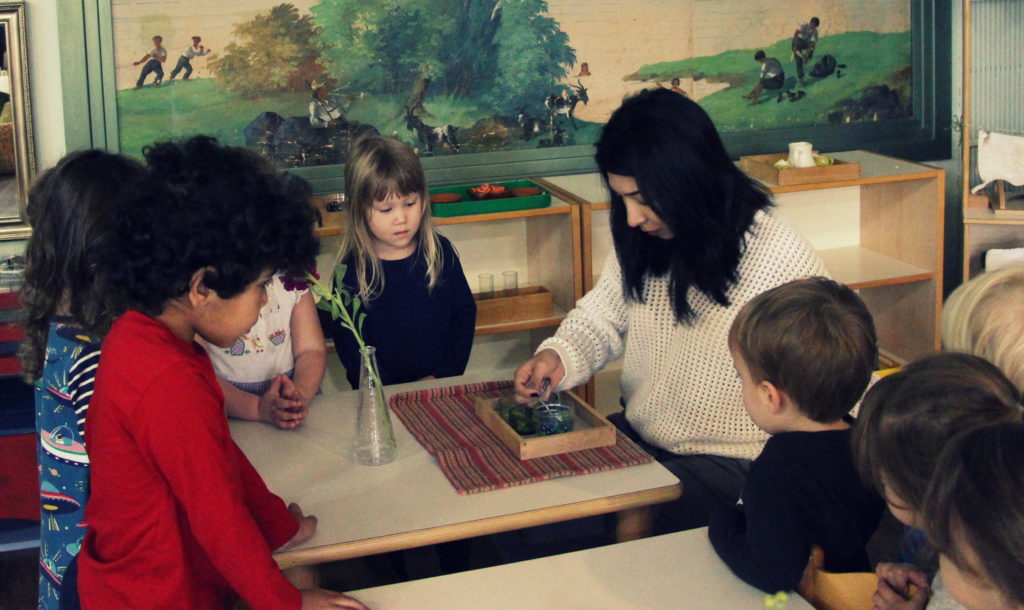

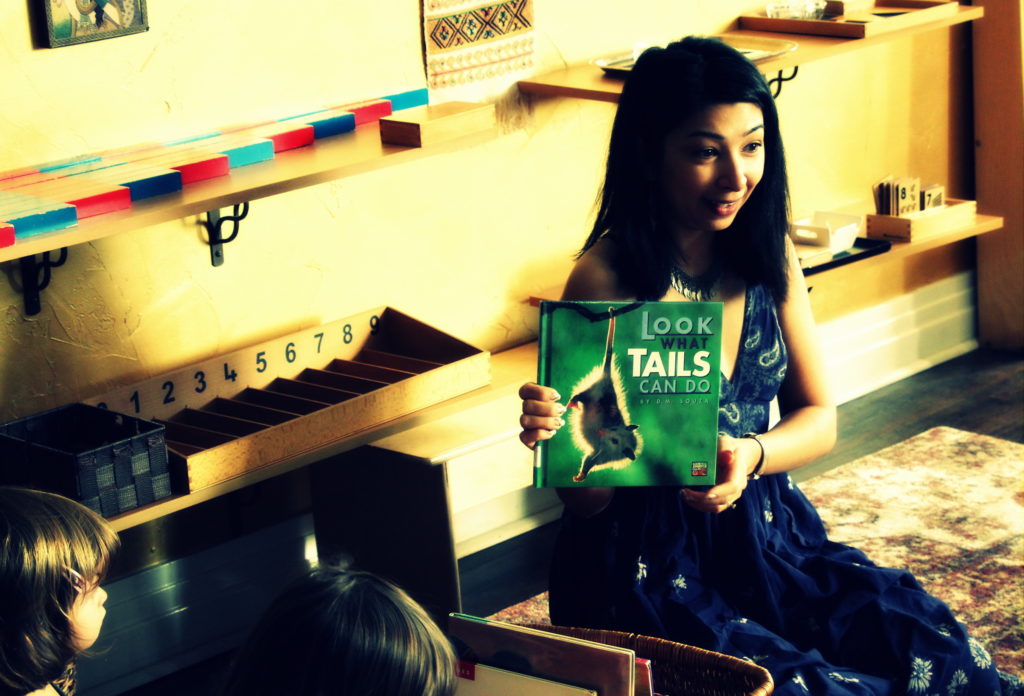

Work Cycles & More
We see positive and immediate reactions after lessons as children go off into a work cycle with a mission. They branch off in different directions, quick to grab their rugs or mats, and ready to practice new materials on their own or with a peer in a constructive and thoughtful manner. It is truly a pleasant sight to see! We hope you enjoy the following images. Be sure to comment as we love to hear from you, and don’t forget to take some quality time with your child and spouse to browse through the photos as a family.
Recent Celebrations of Lives
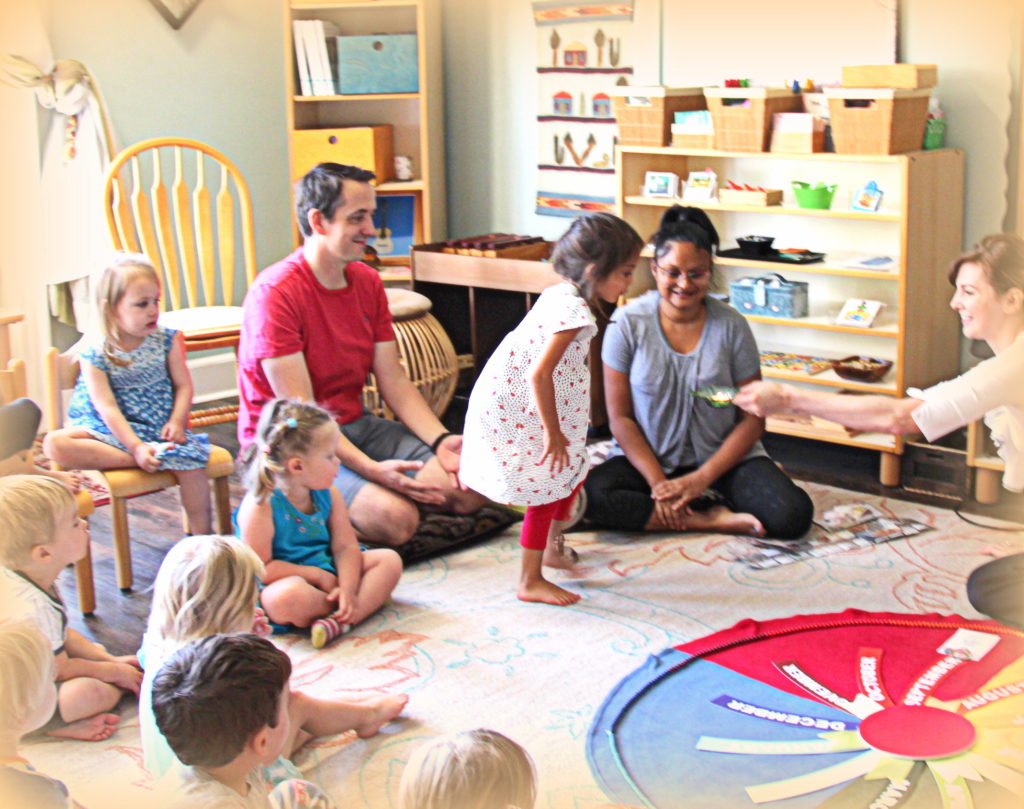
Anjali’s Celebration of Life 
Nora C’s Celebration of Life 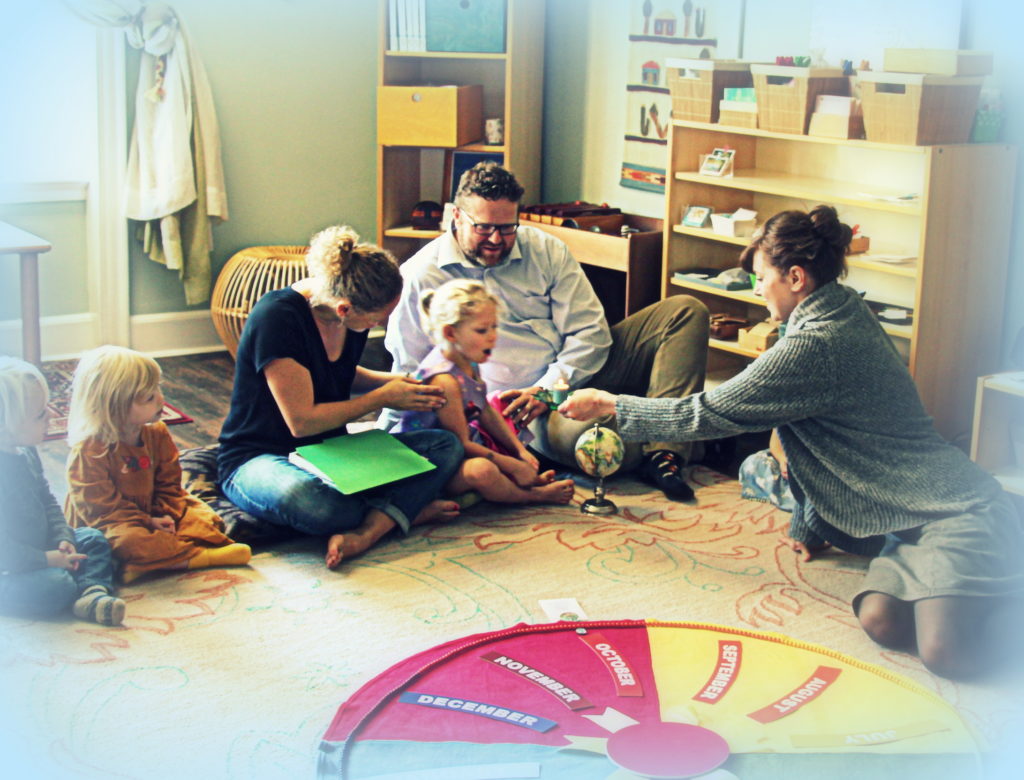
Elyse’s Celebration of Life 
Nora E’s Celebration of Life
And thank you to all of the parents who have helped us thus far in providing healthy and enjoyable snacks during the work cycle!
Thank you so much for taking the time to stop in. I hope to hear from you!












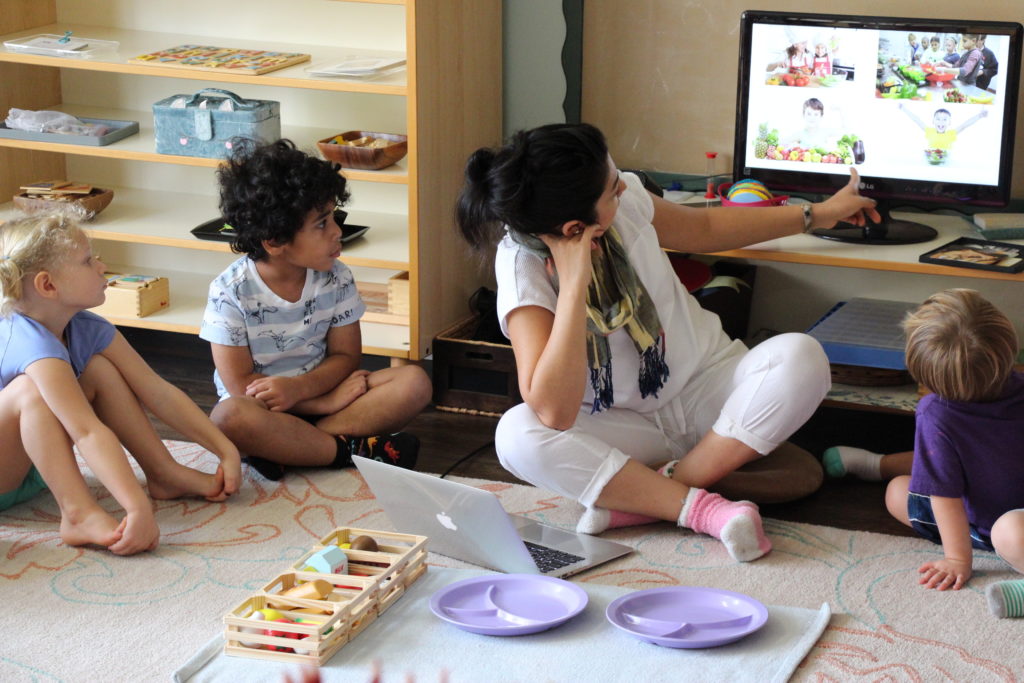
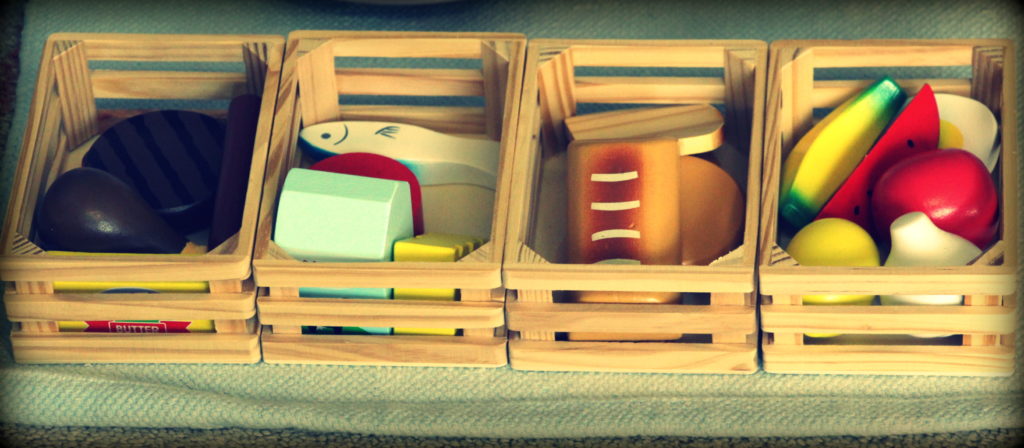
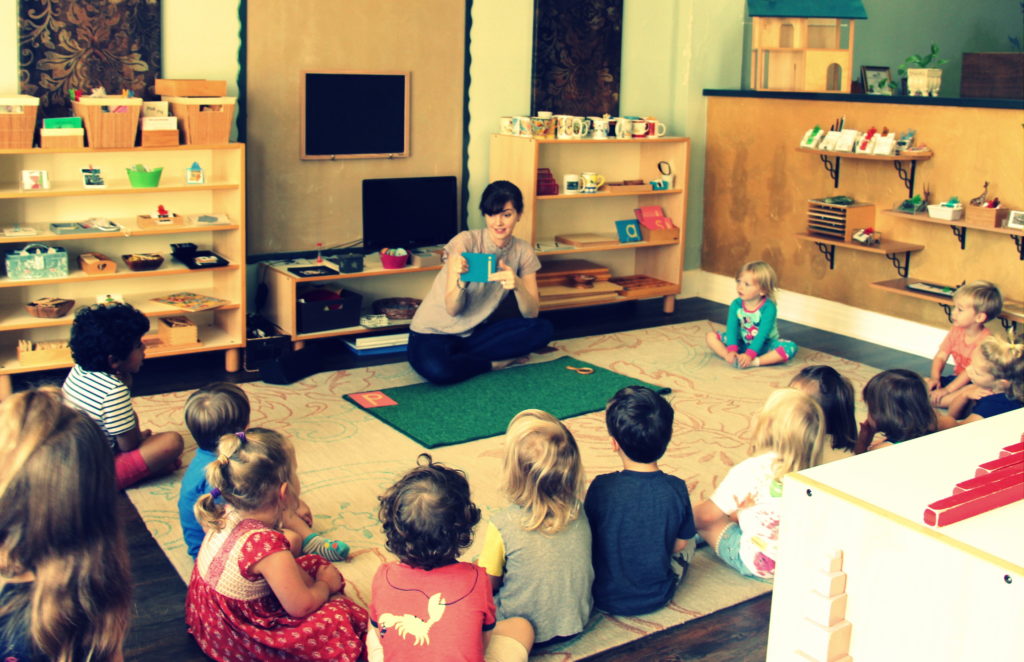
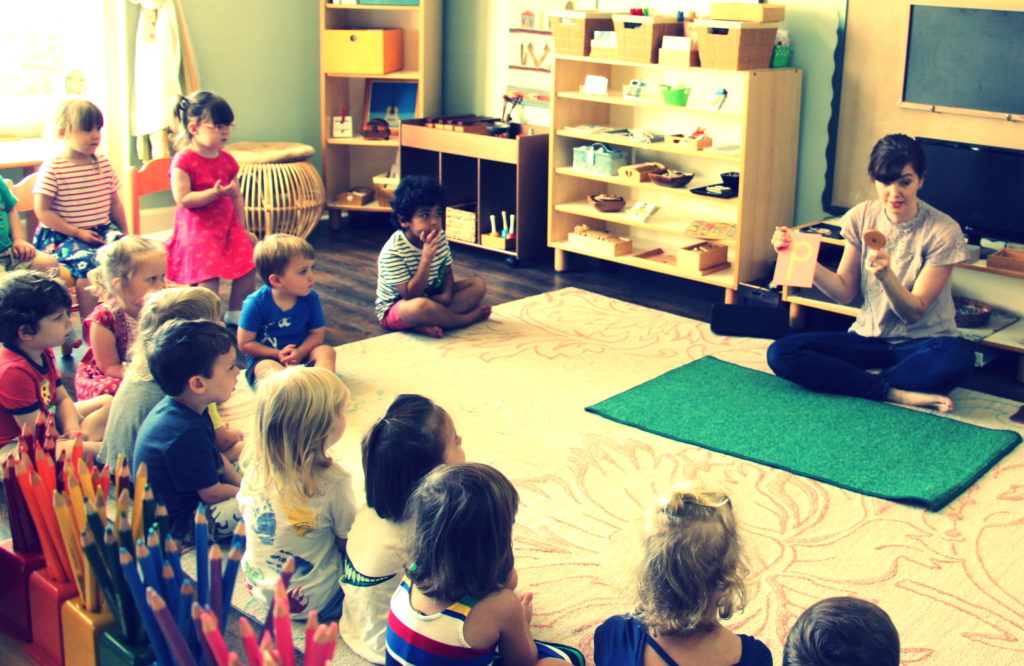
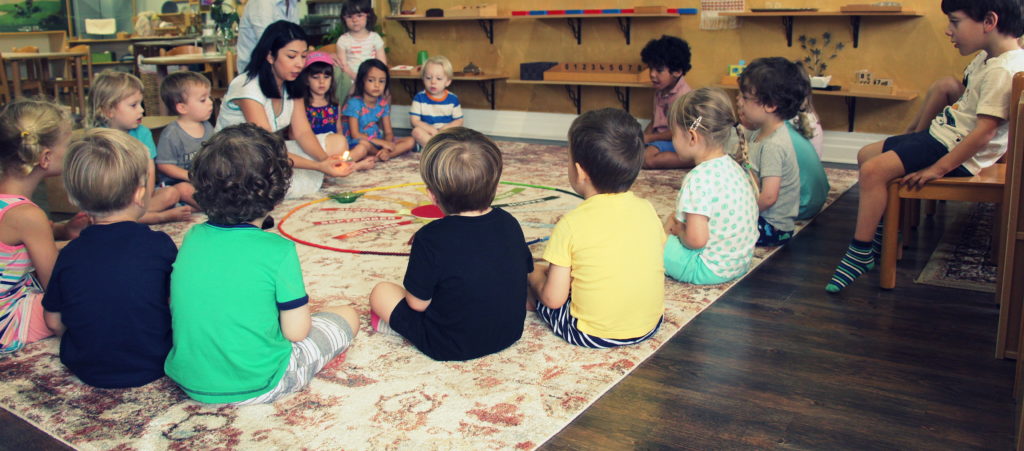



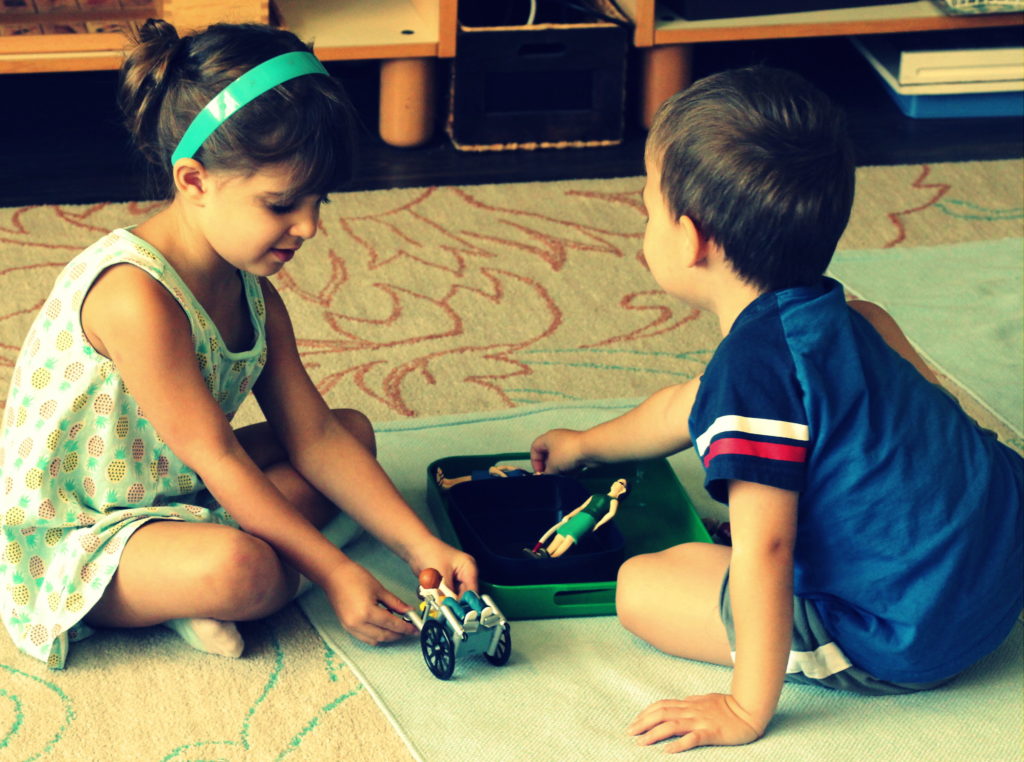

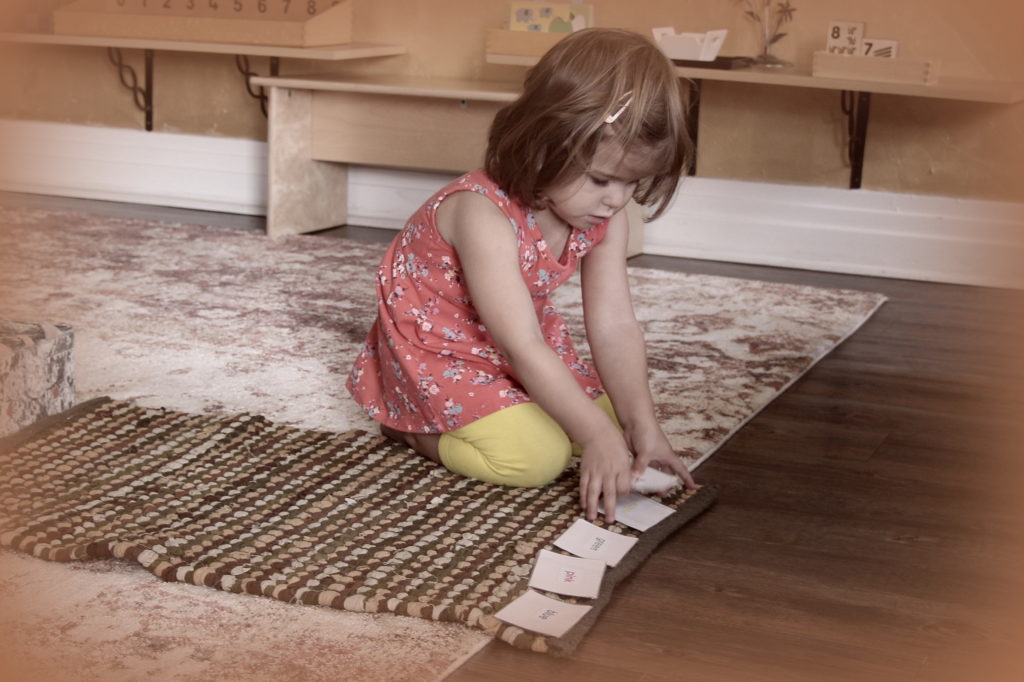





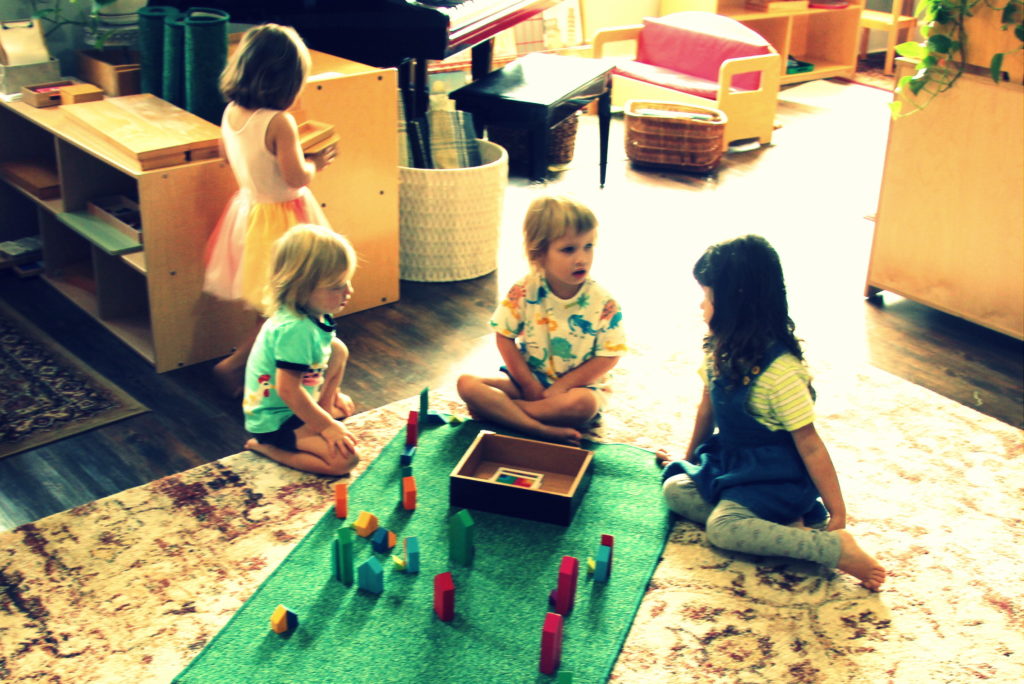
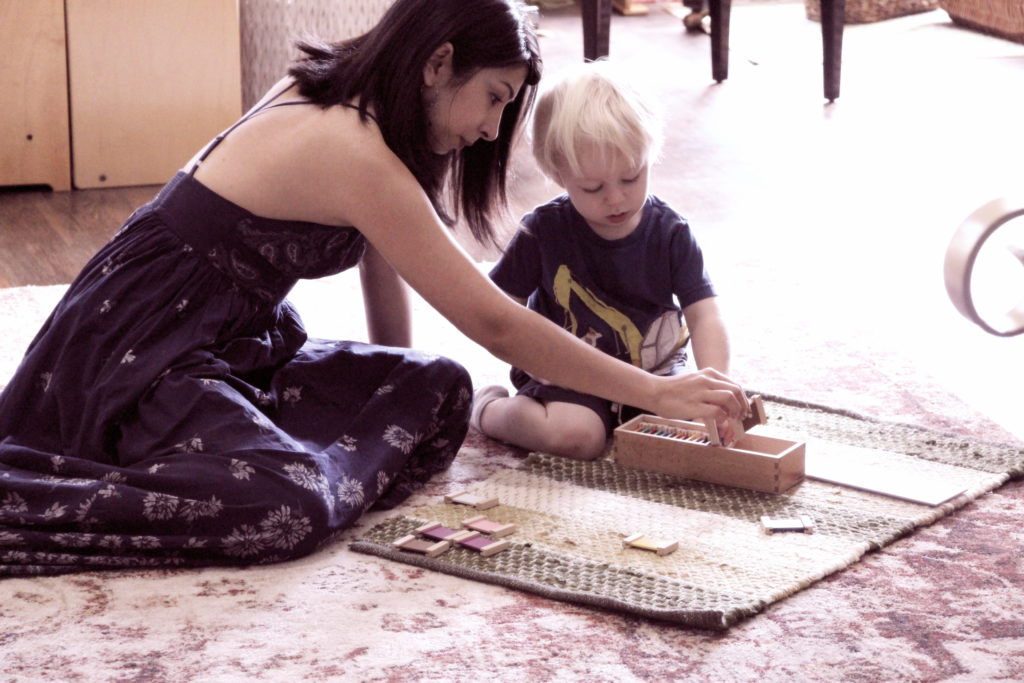



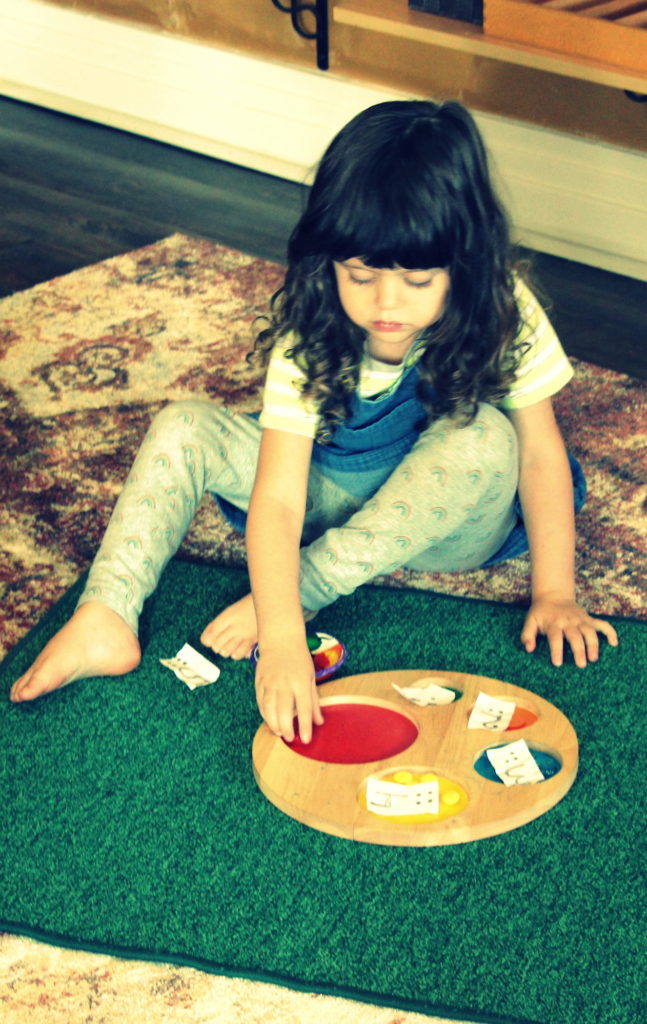

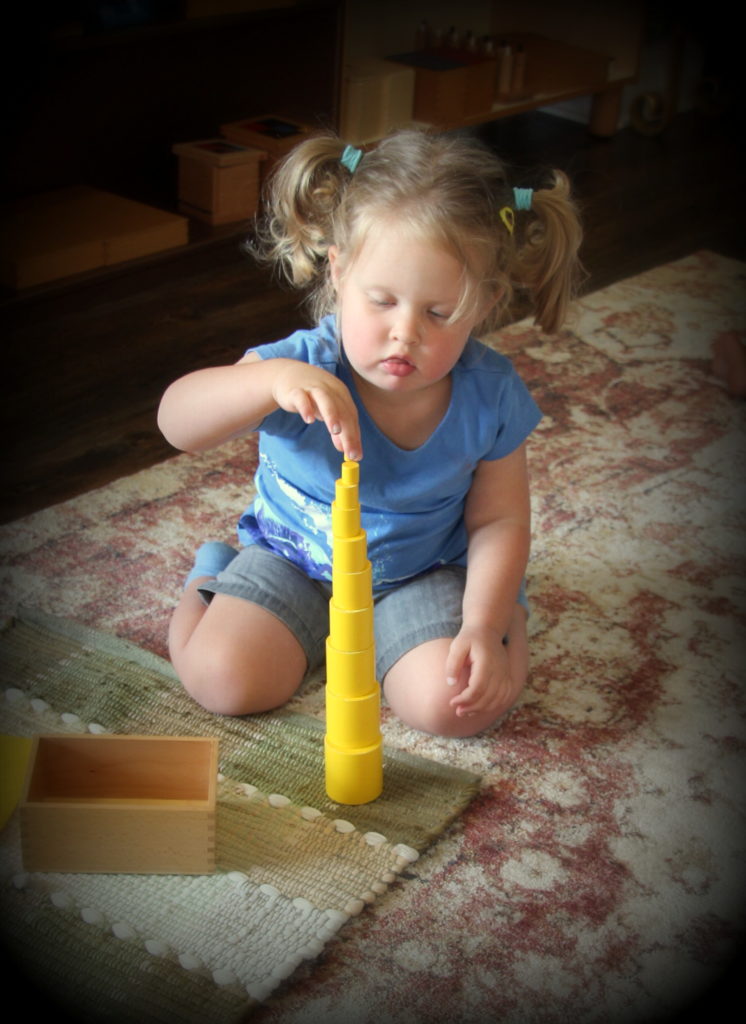
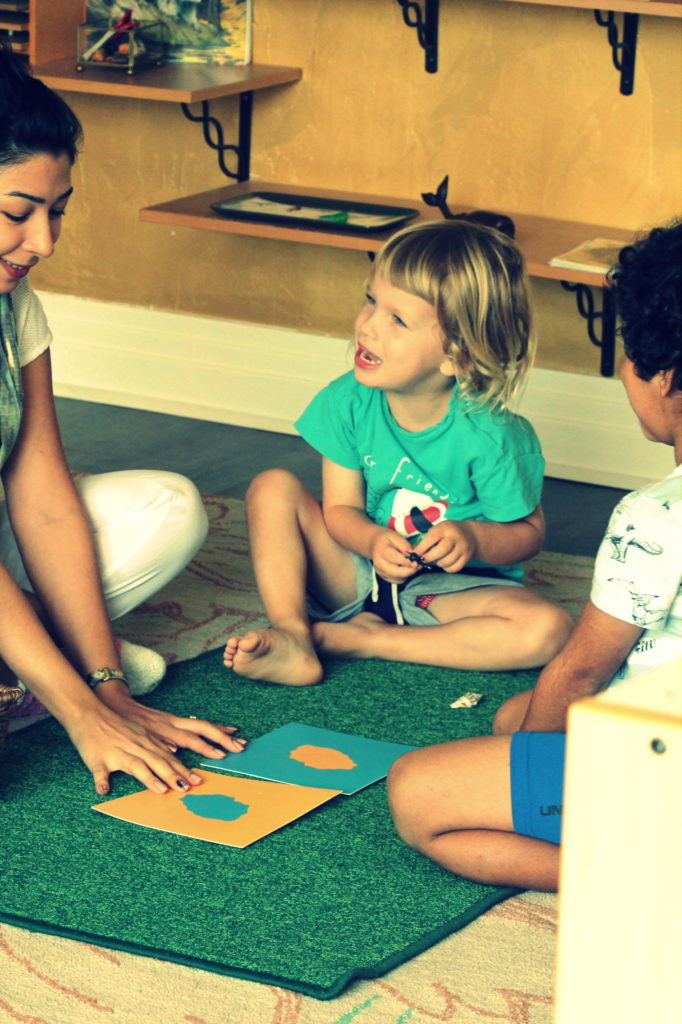


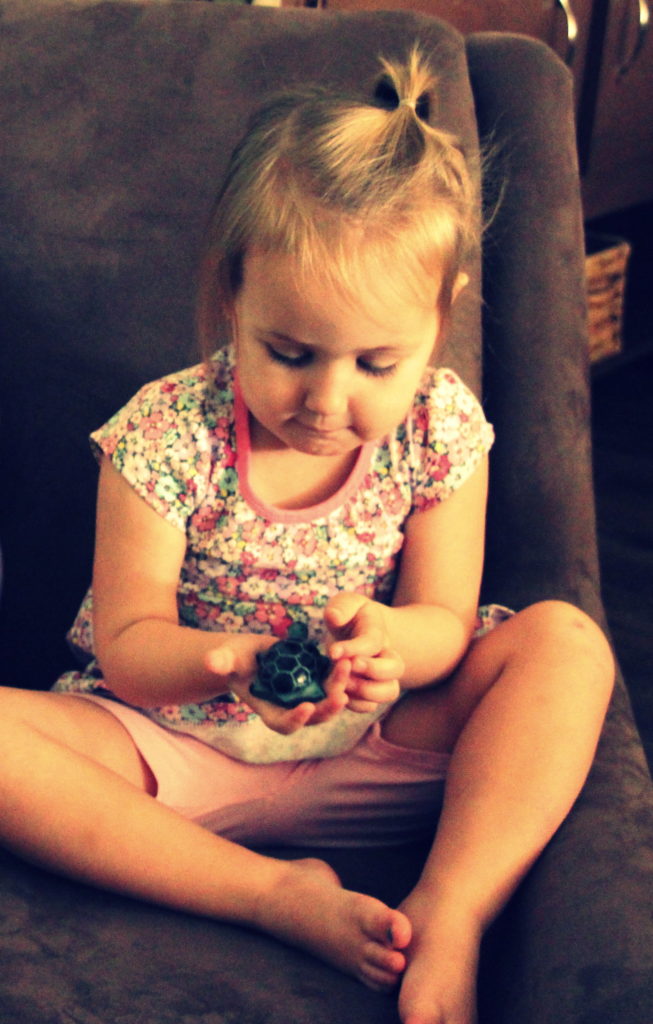
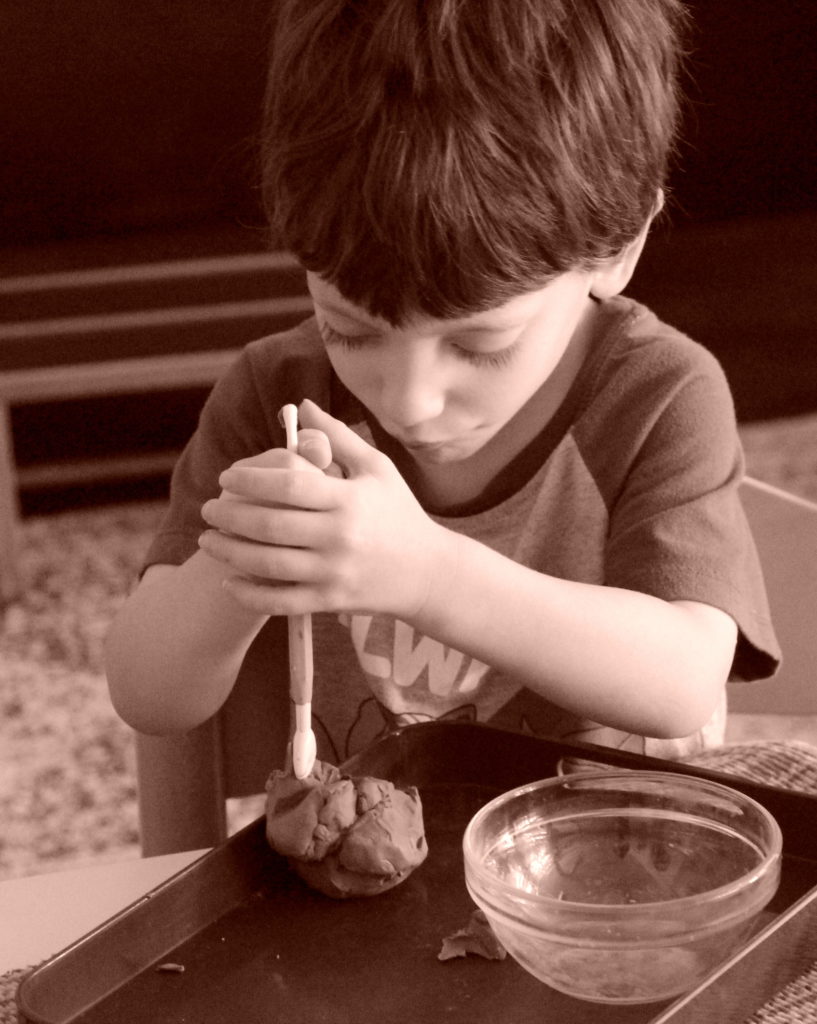

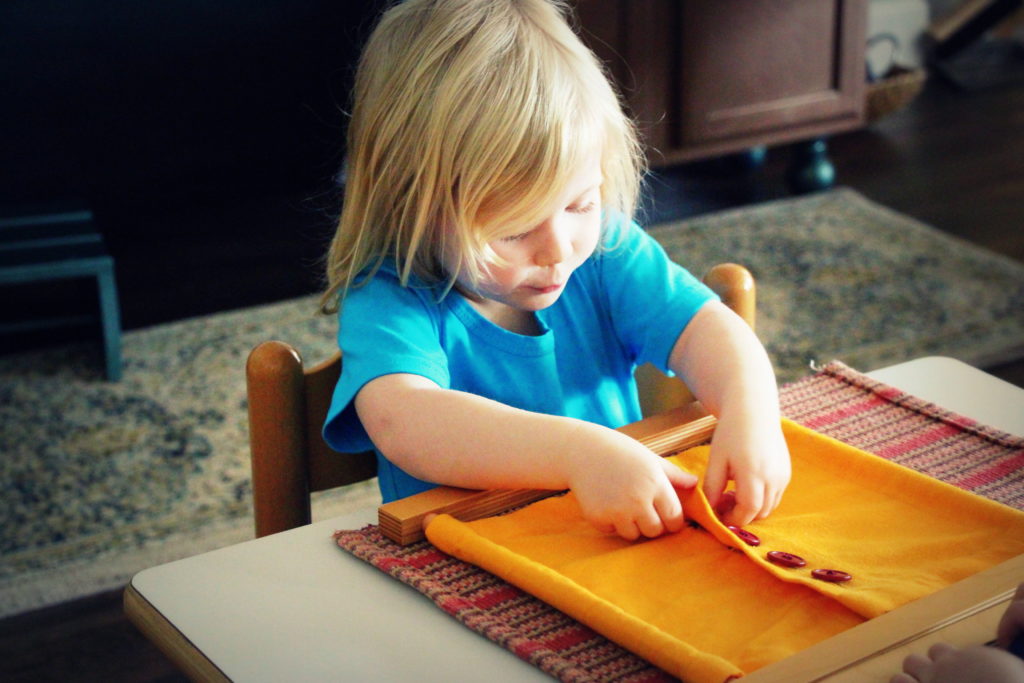




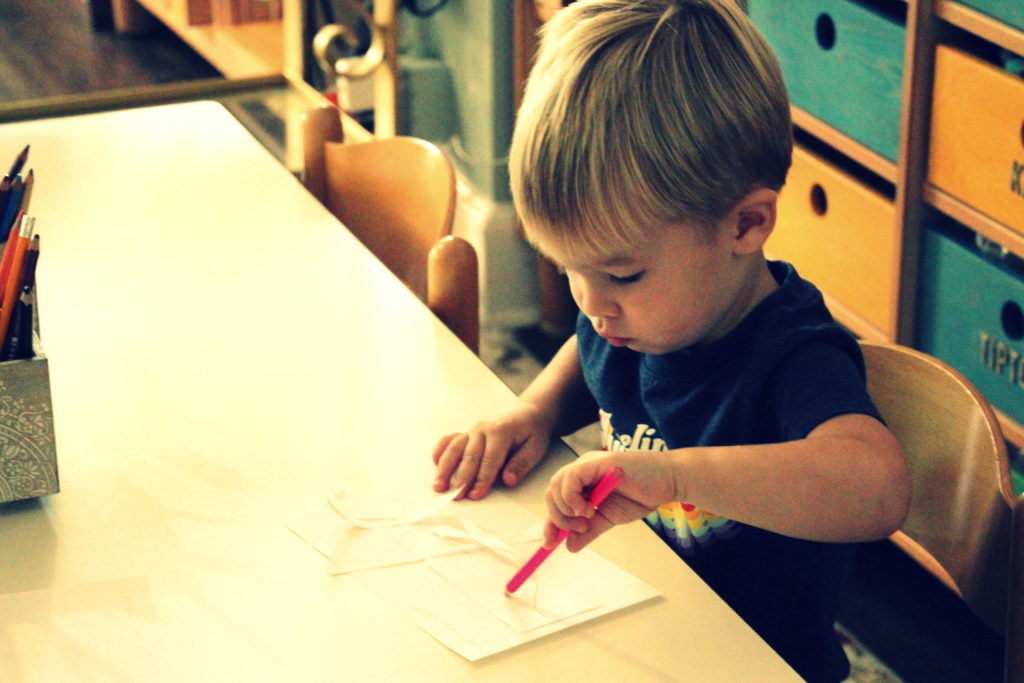
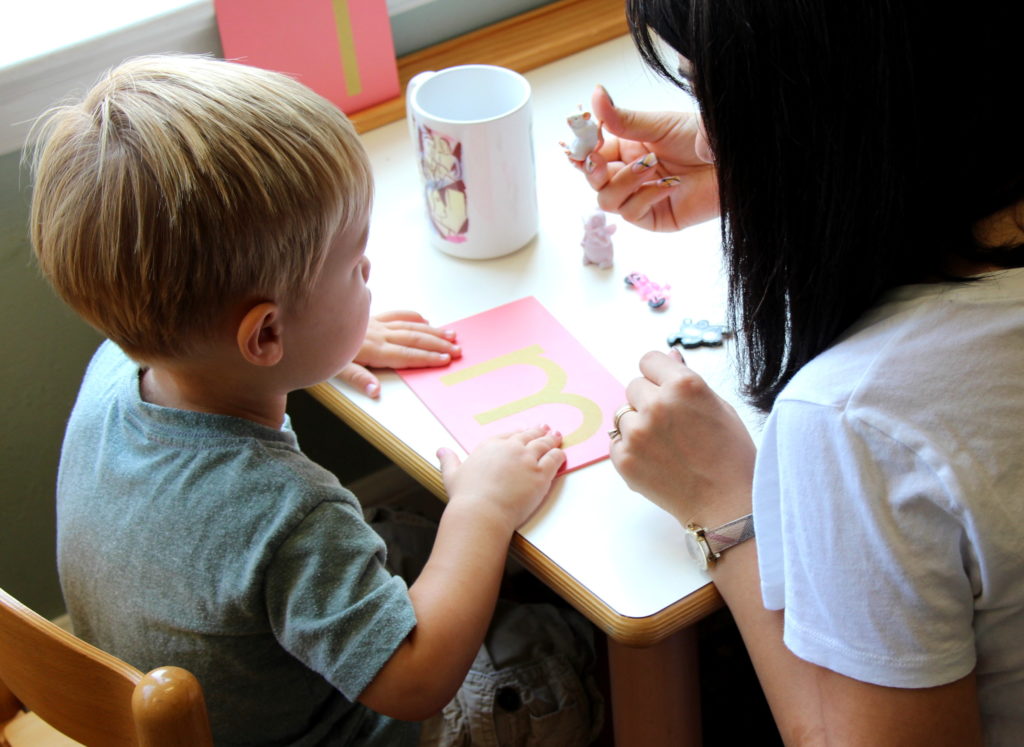
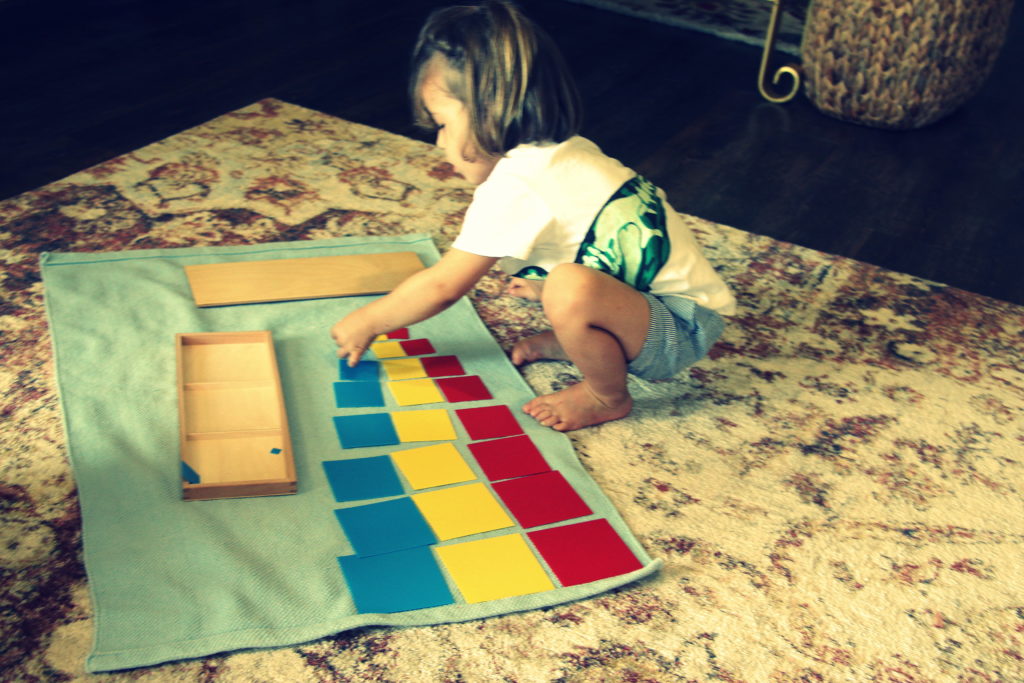

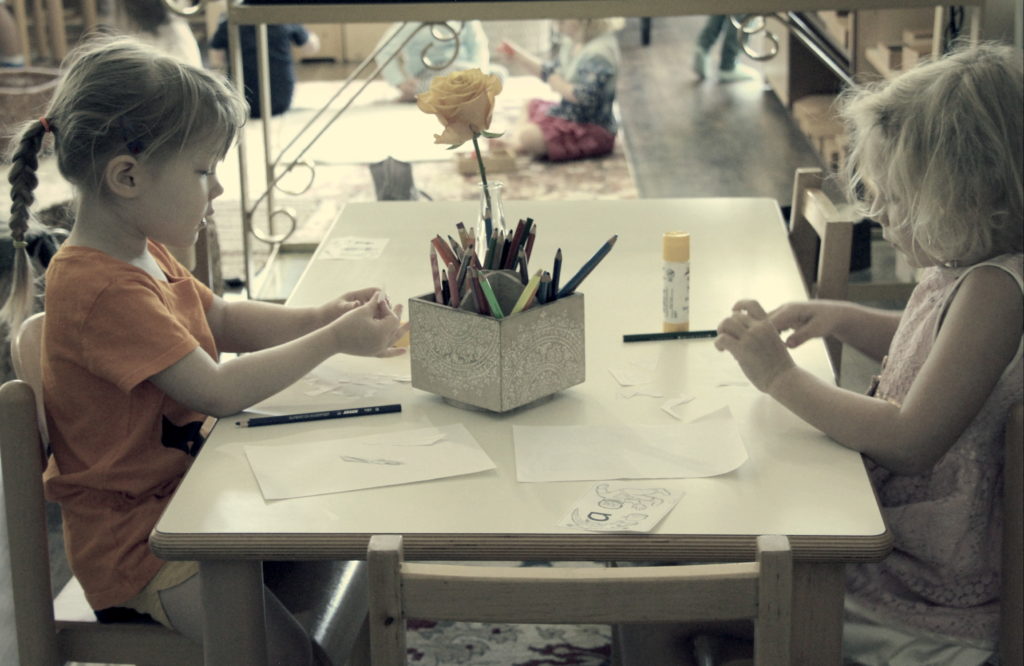


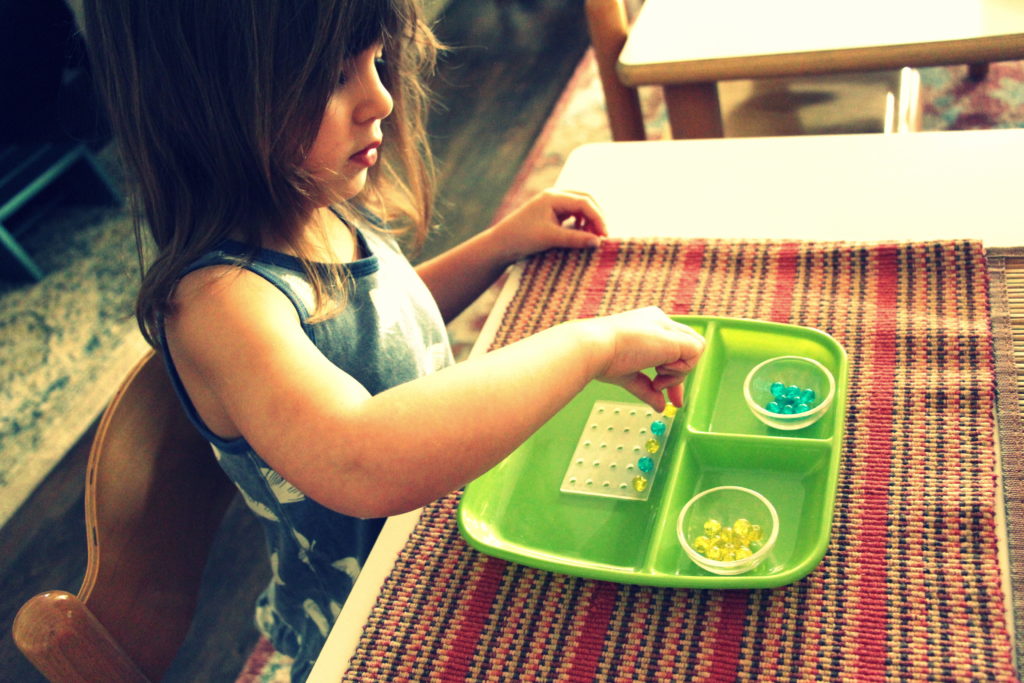
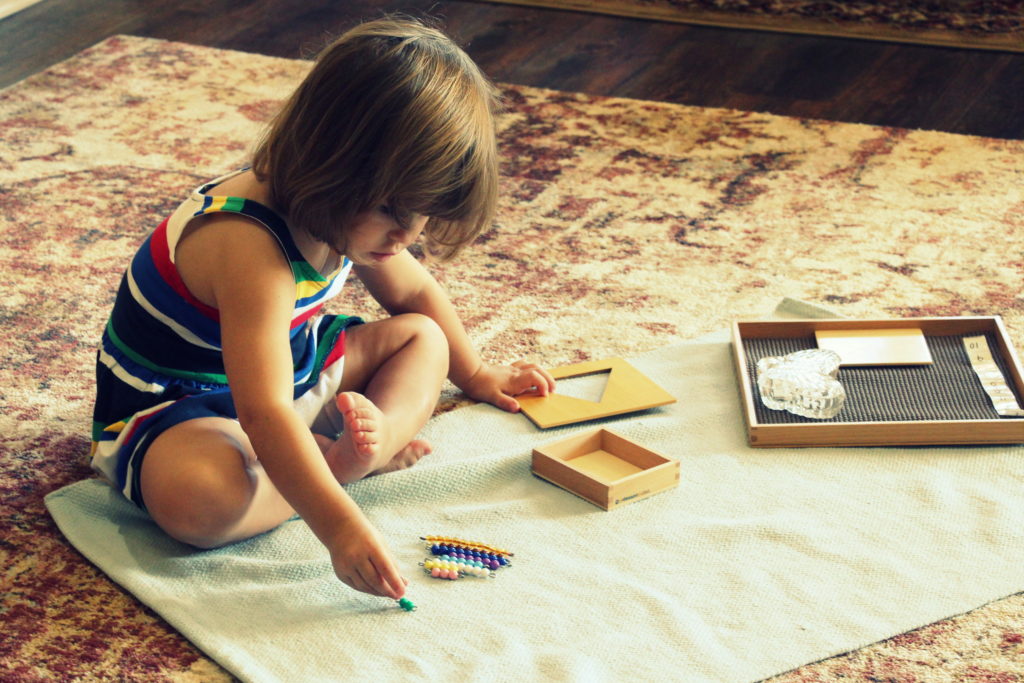
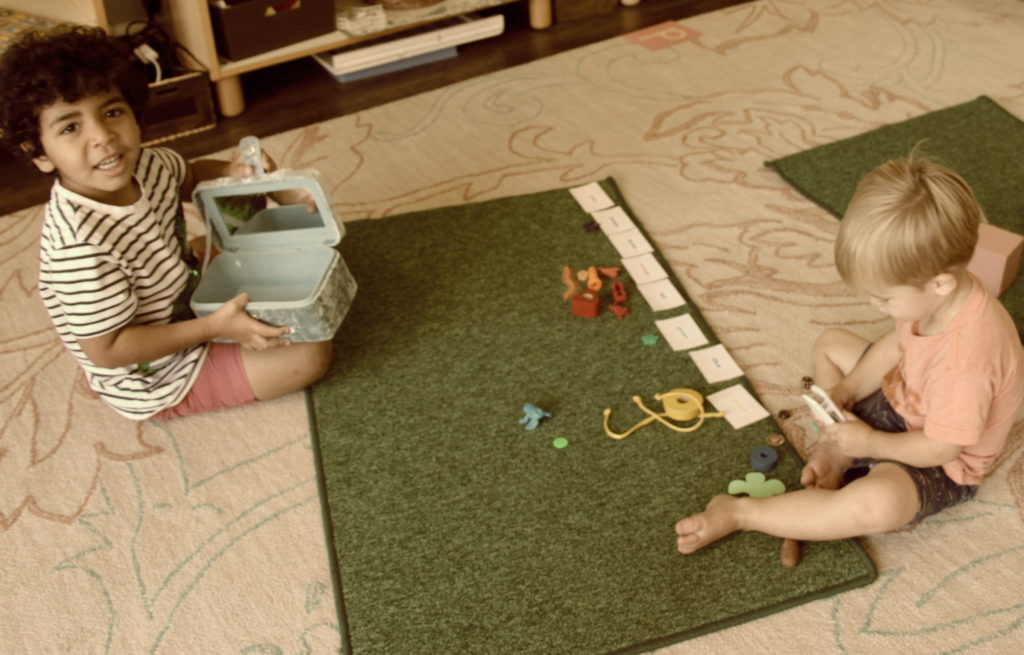
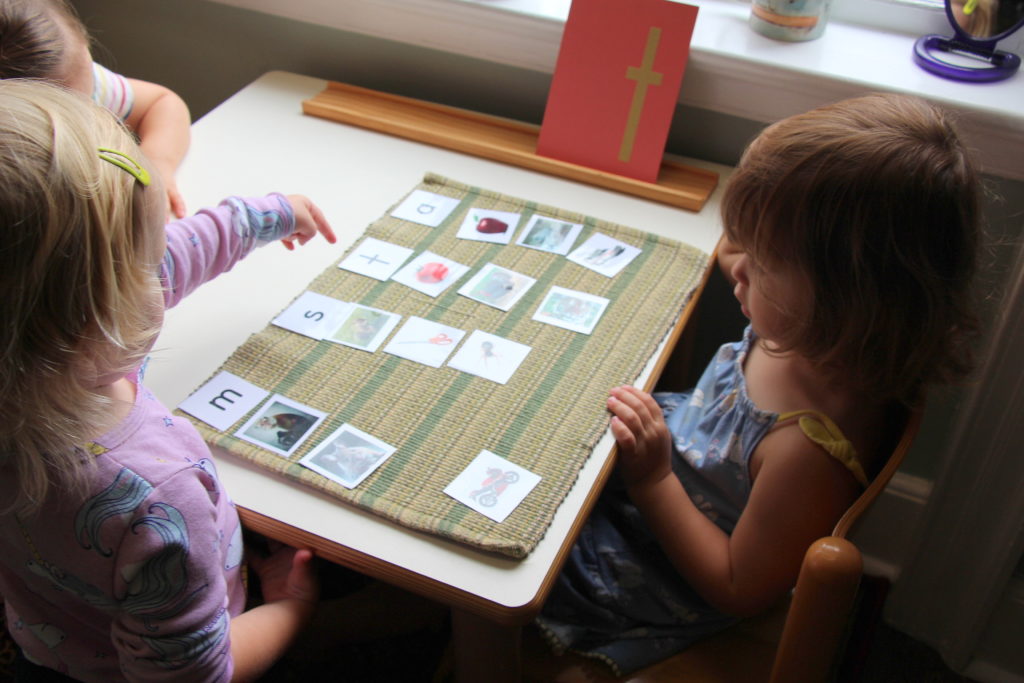
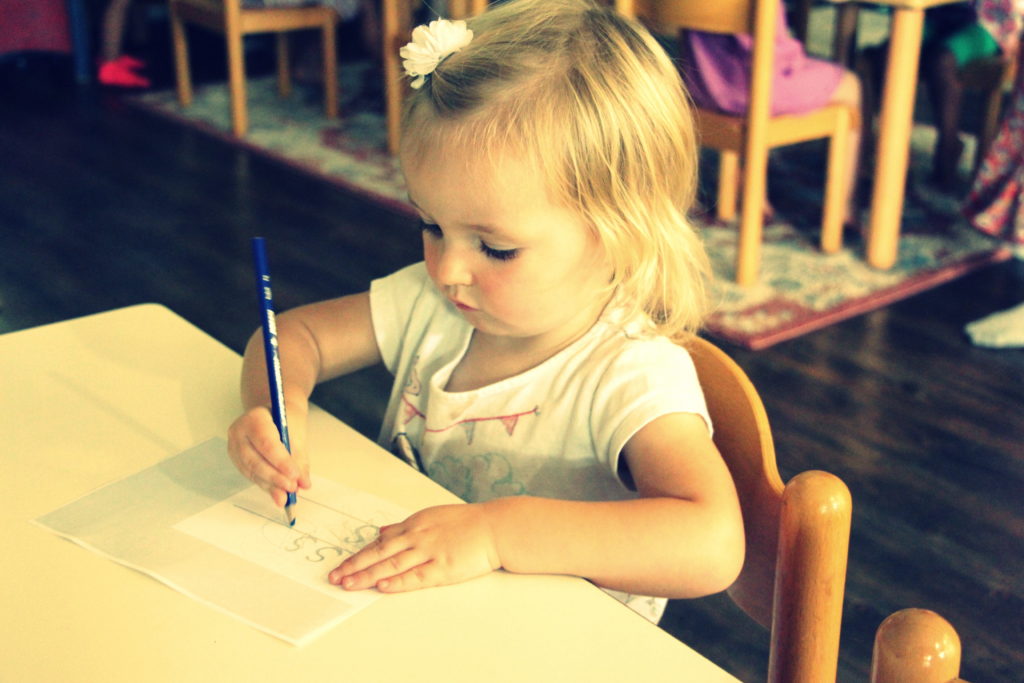

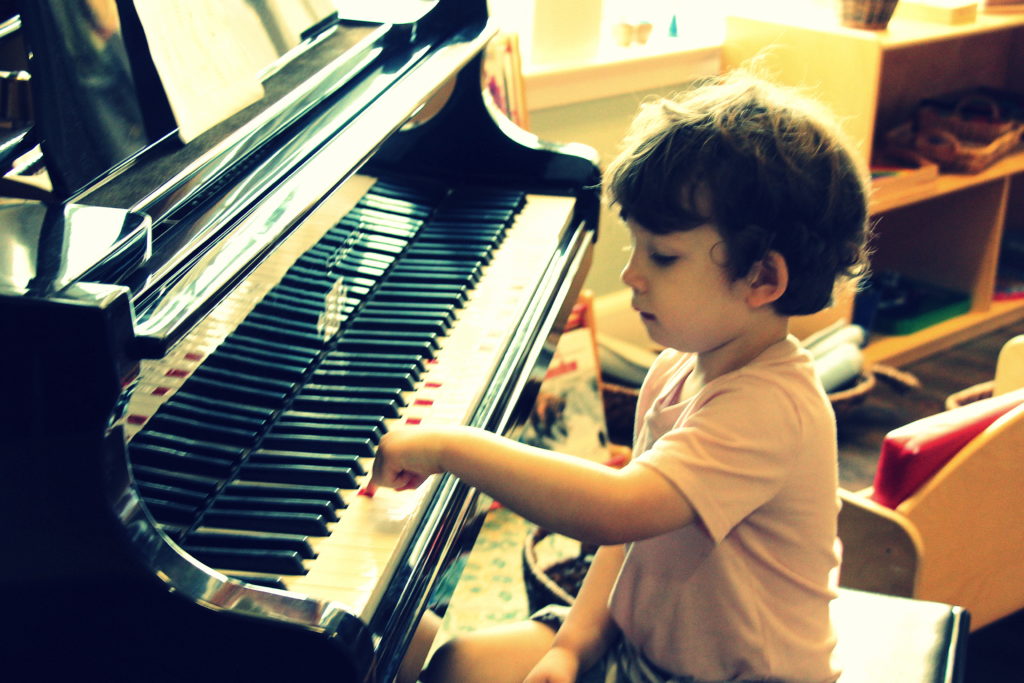





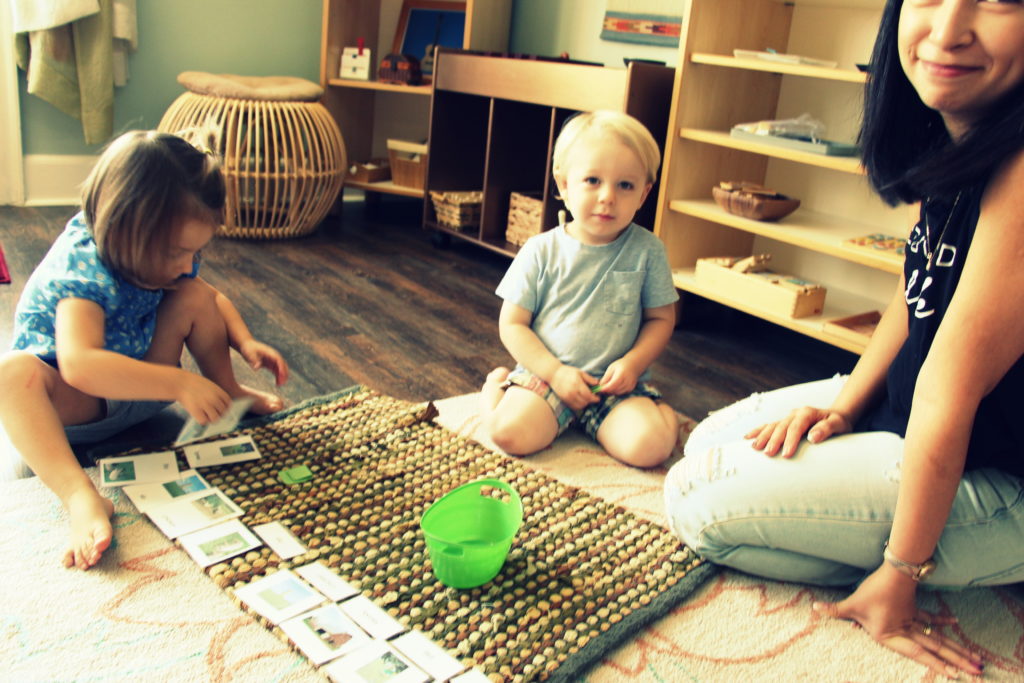
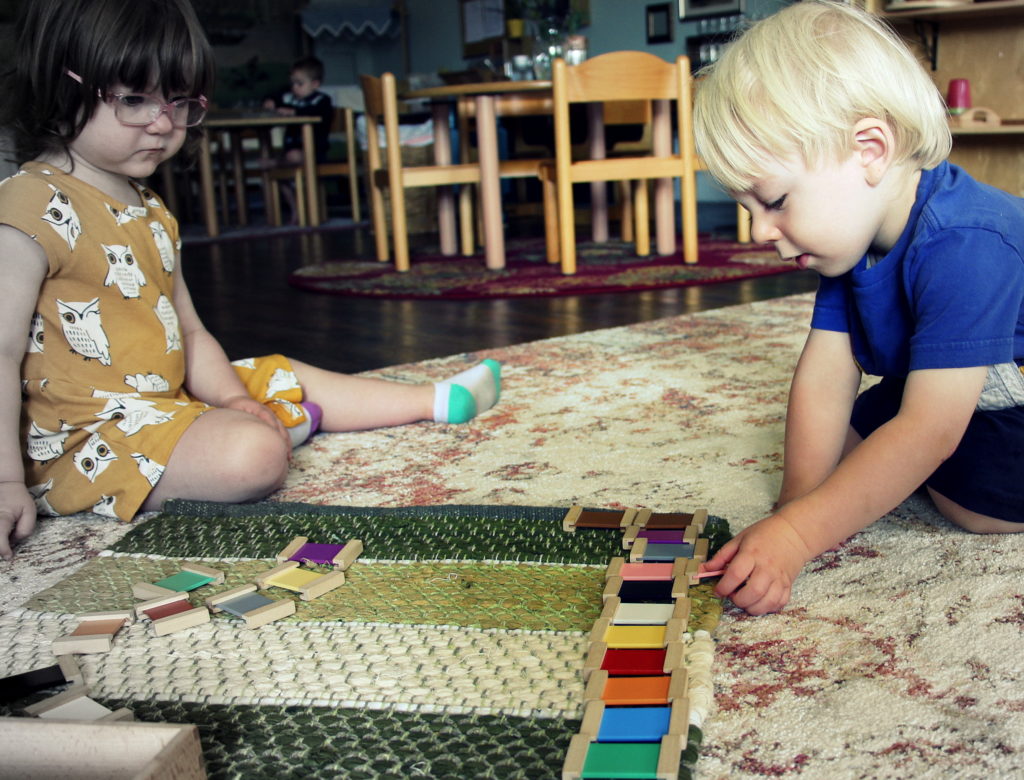
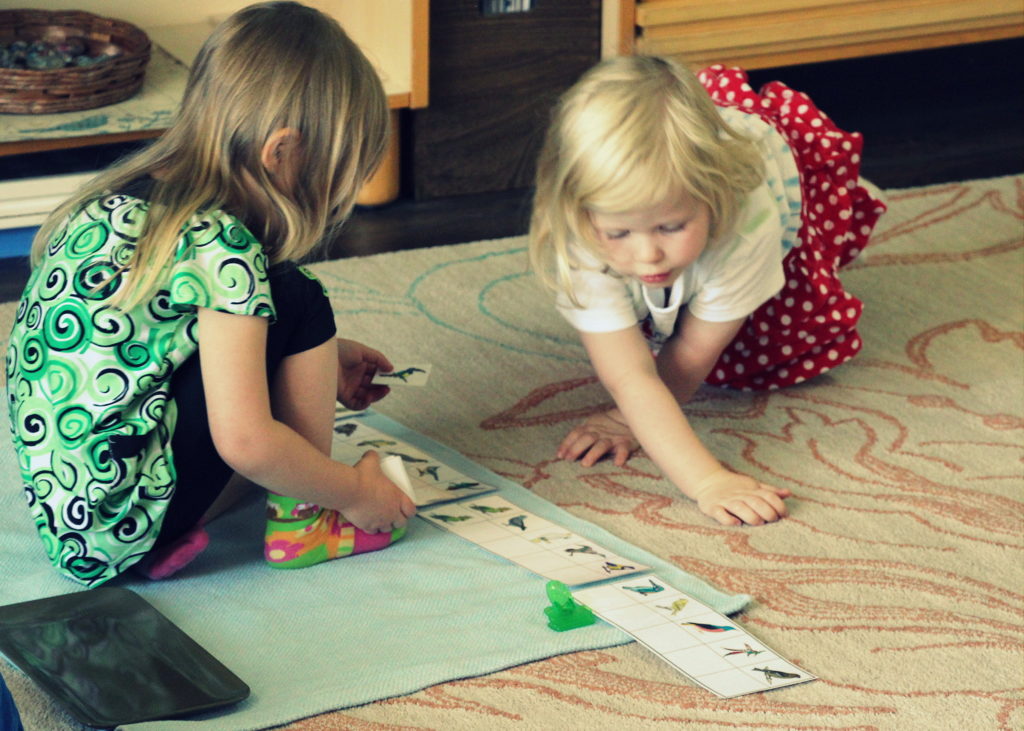



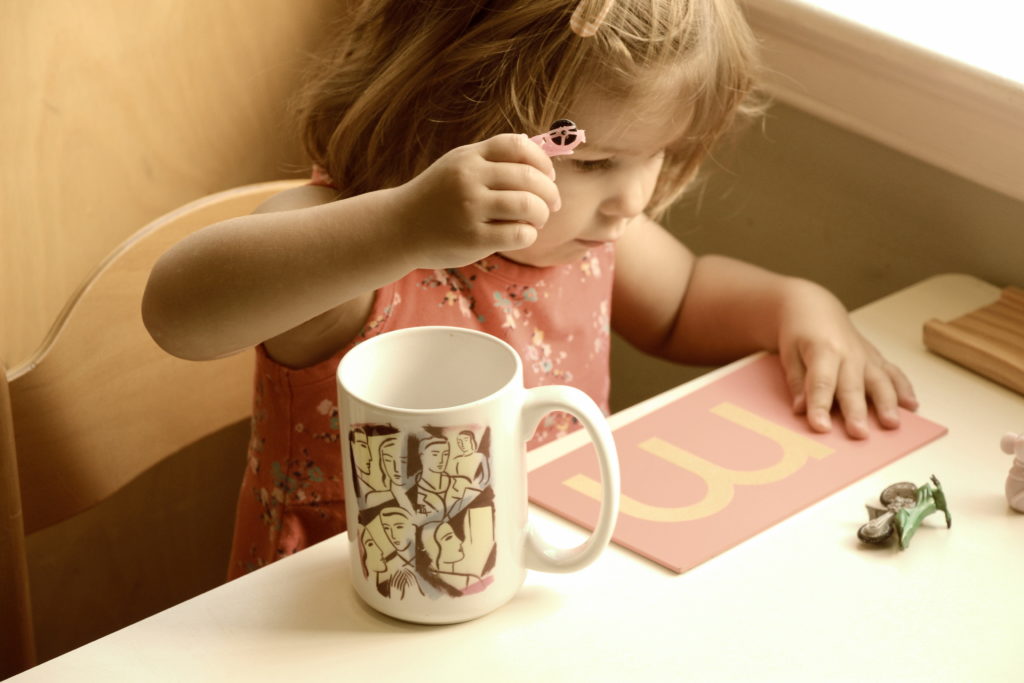



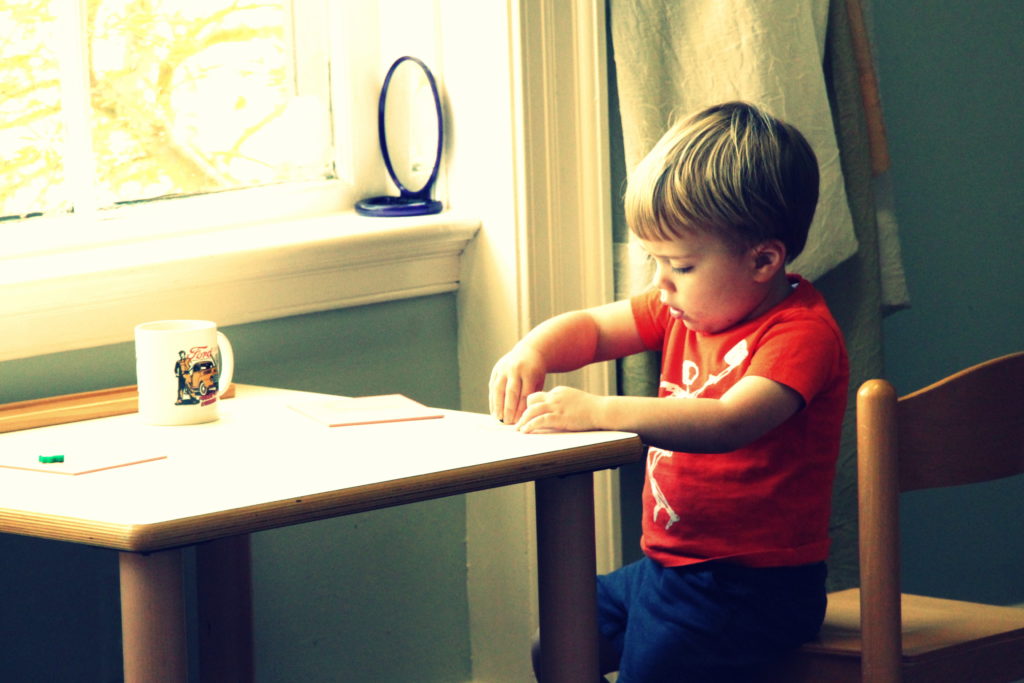

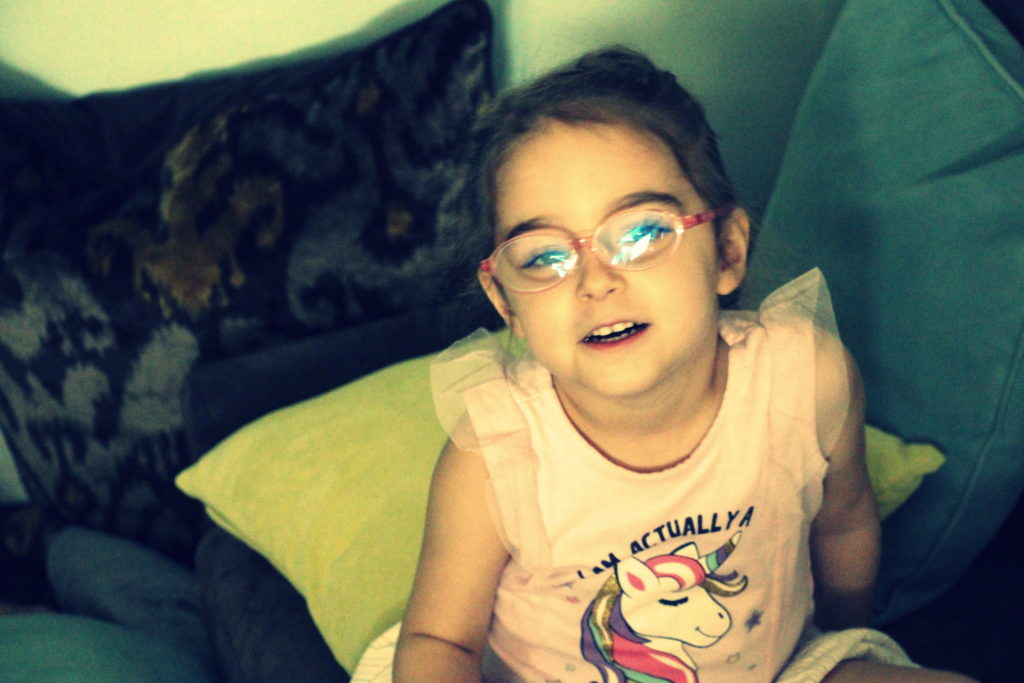

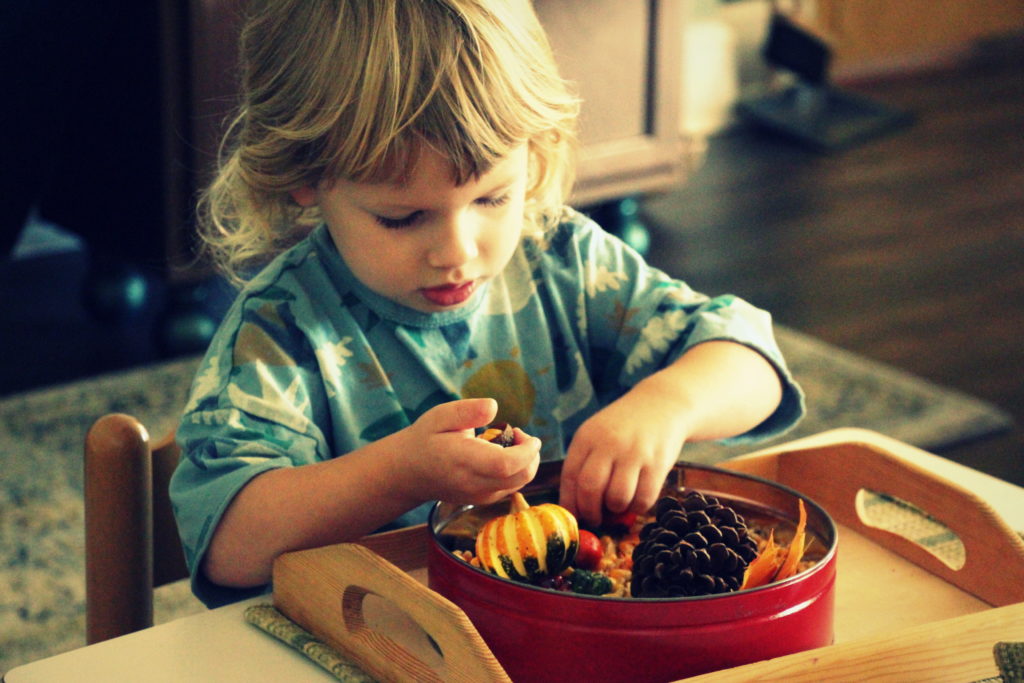
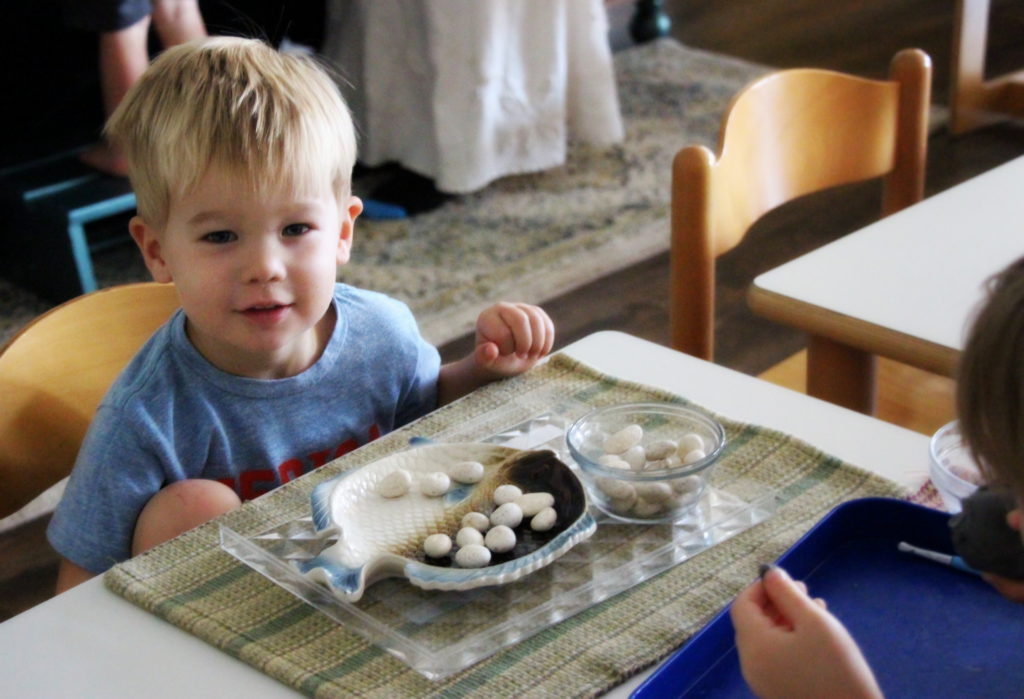
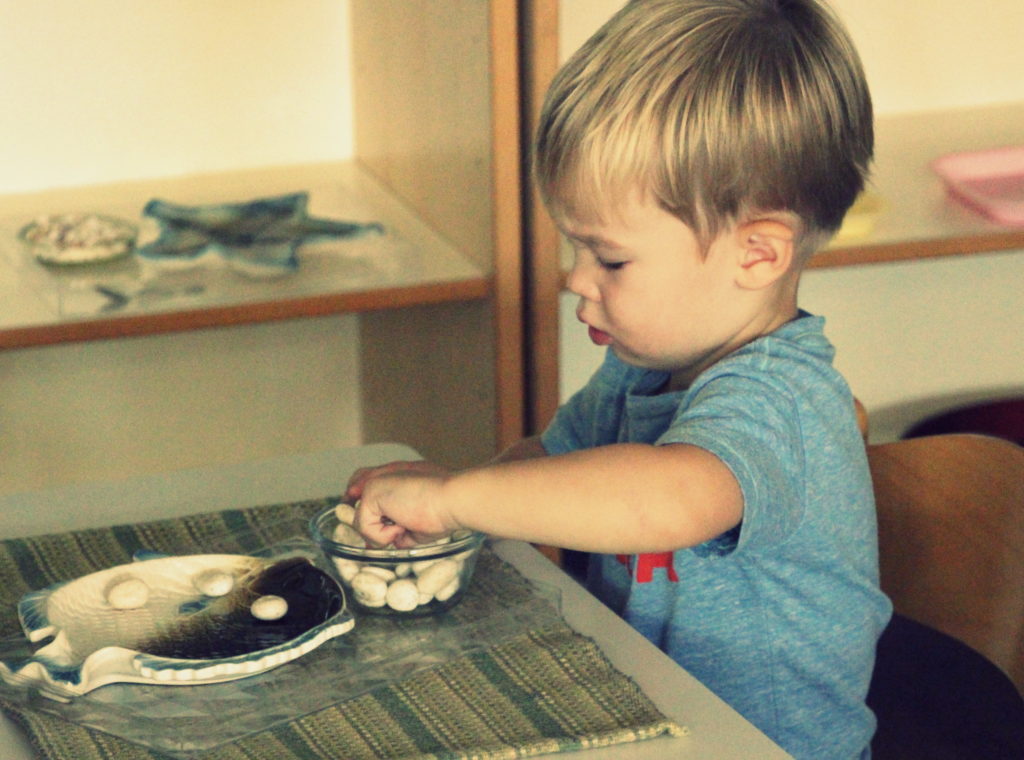
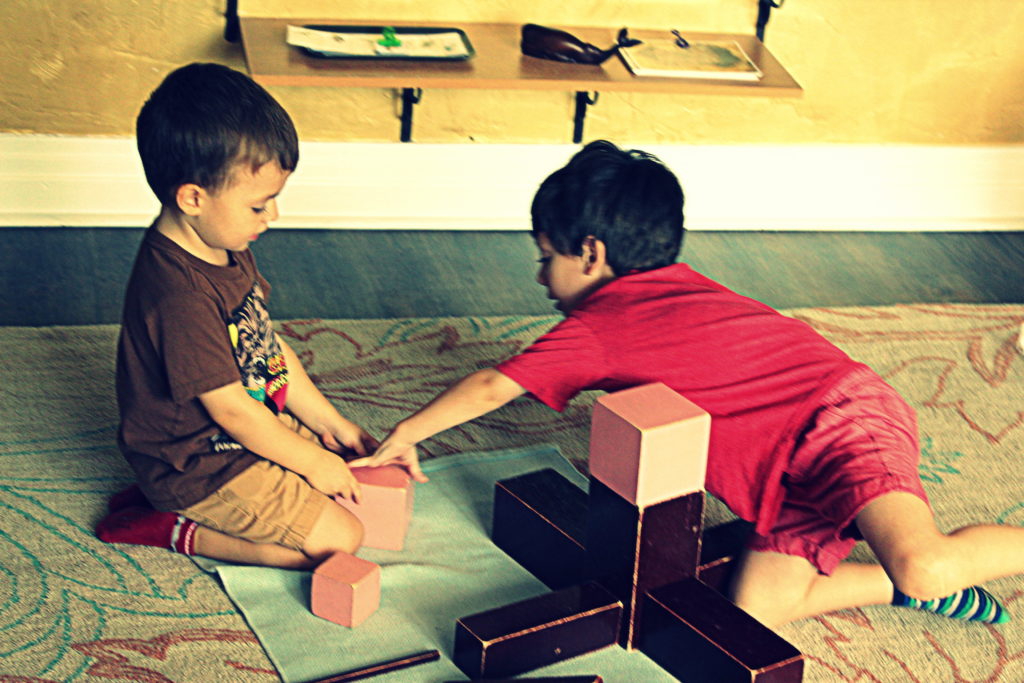
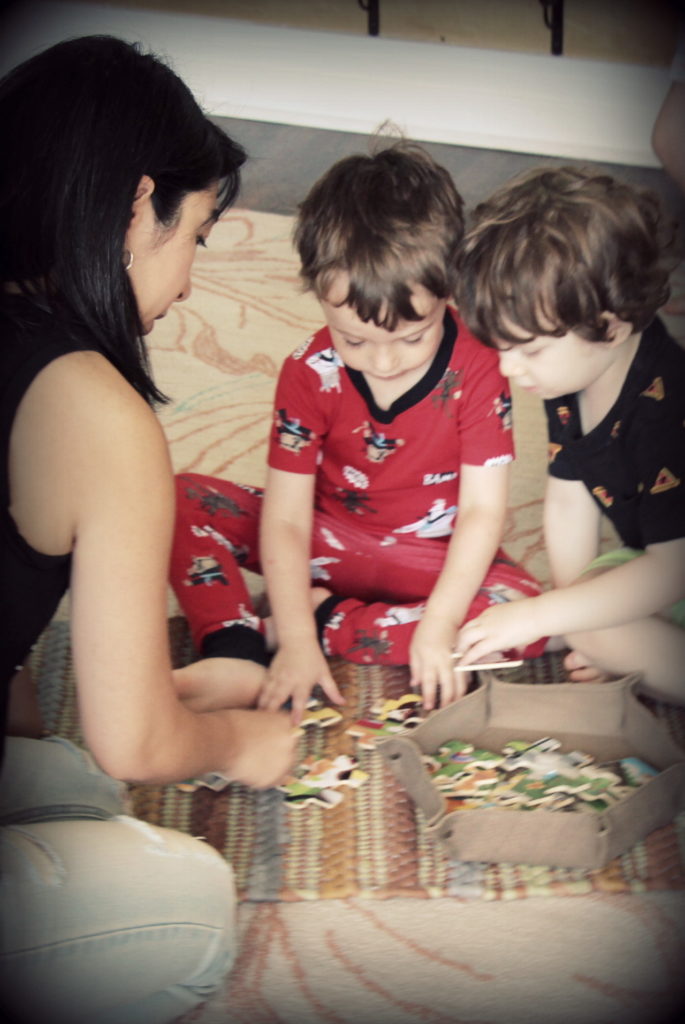






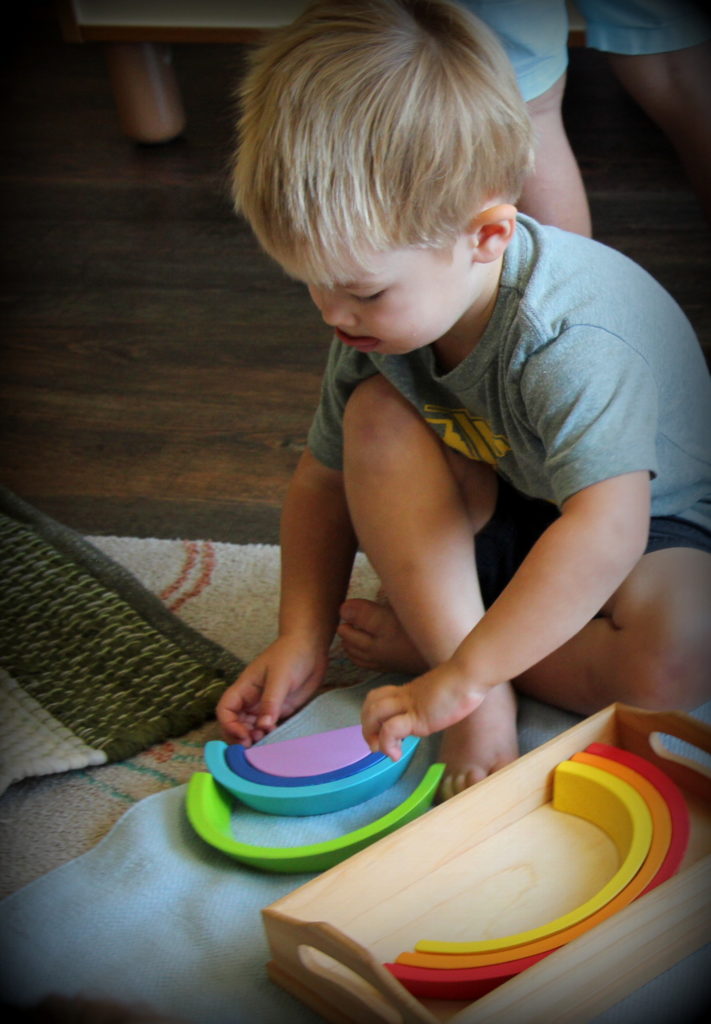


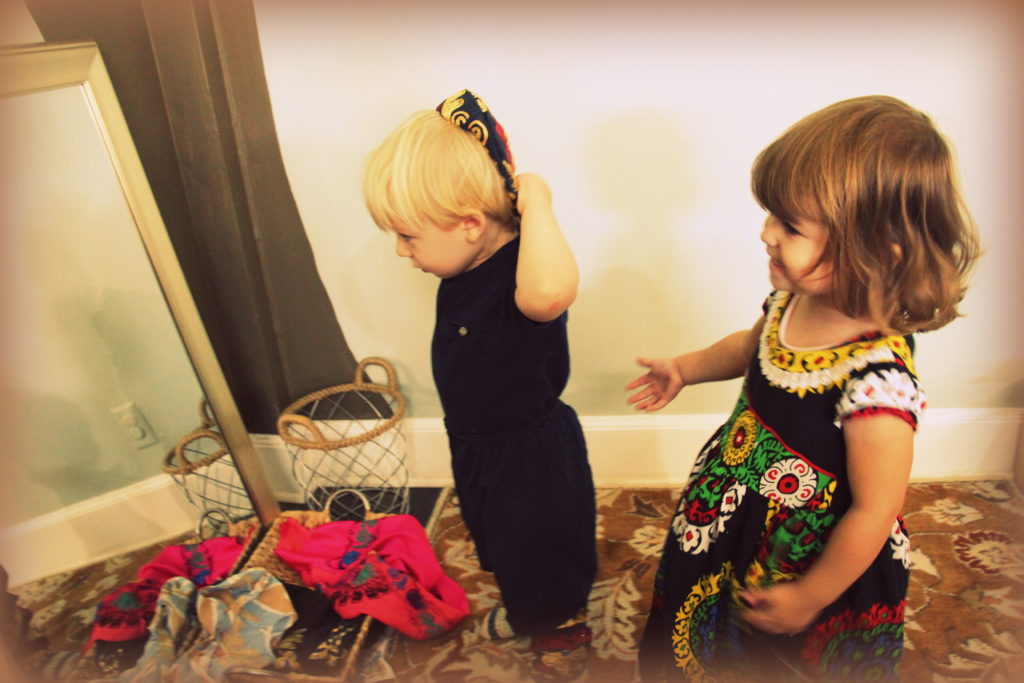

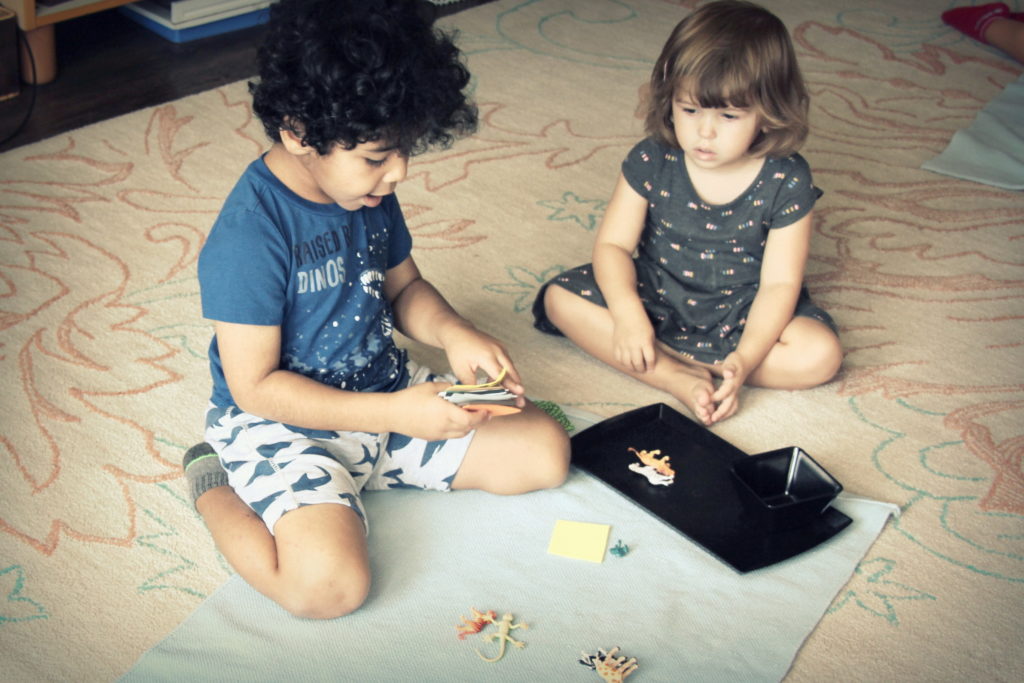


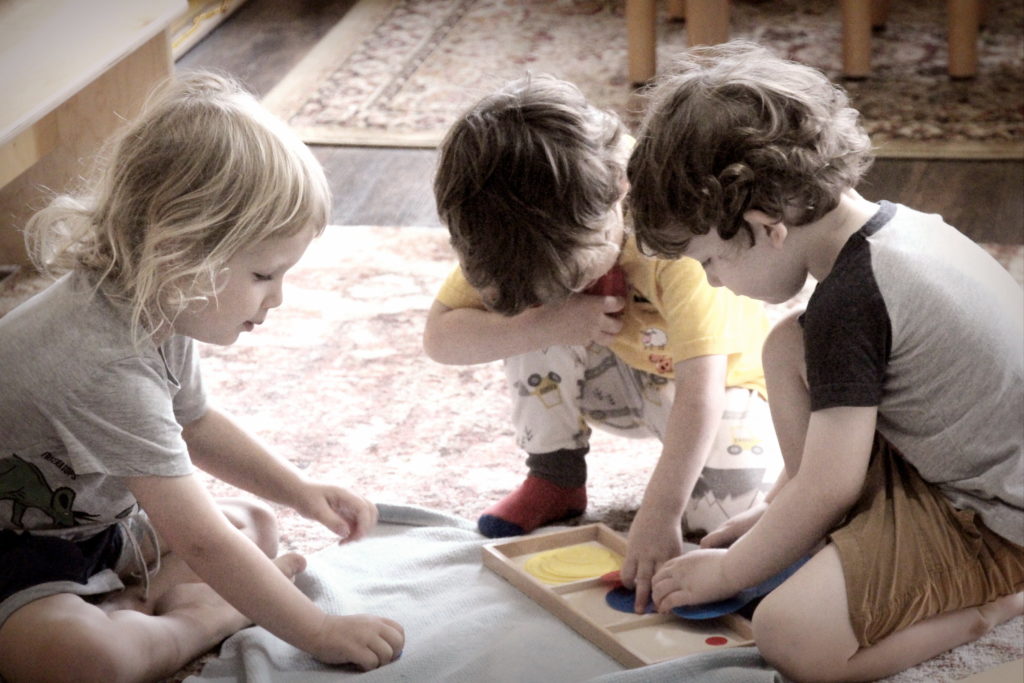

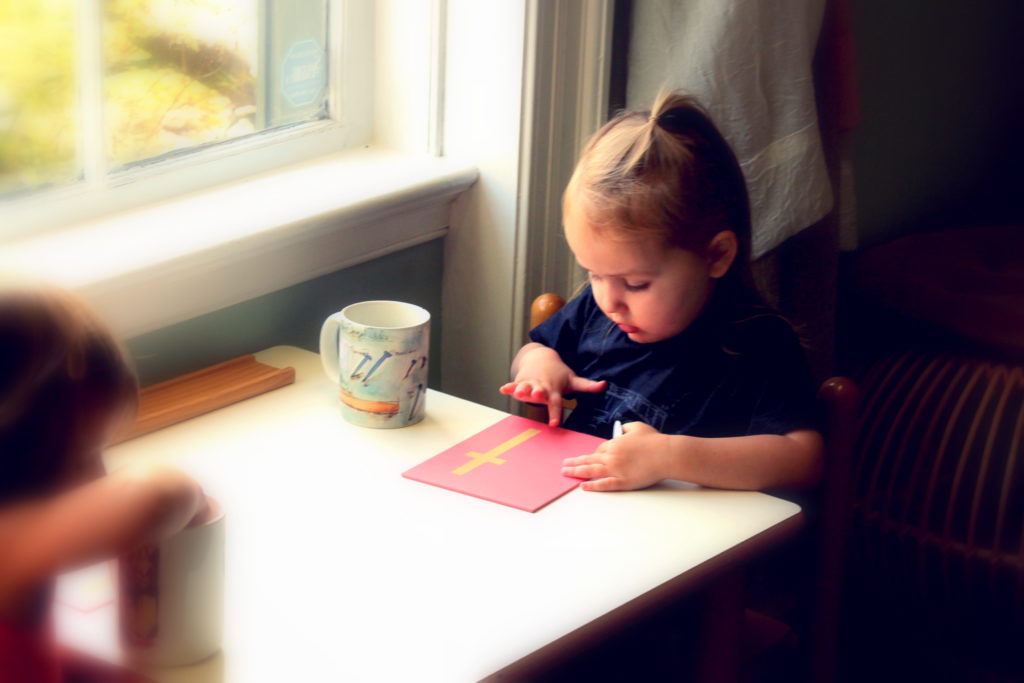


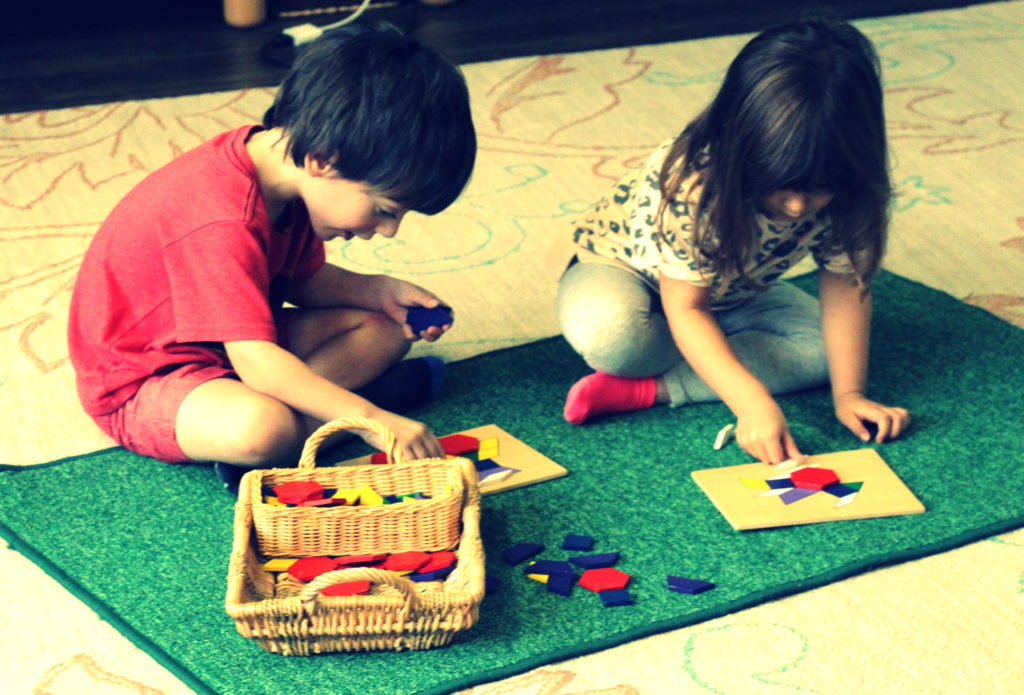

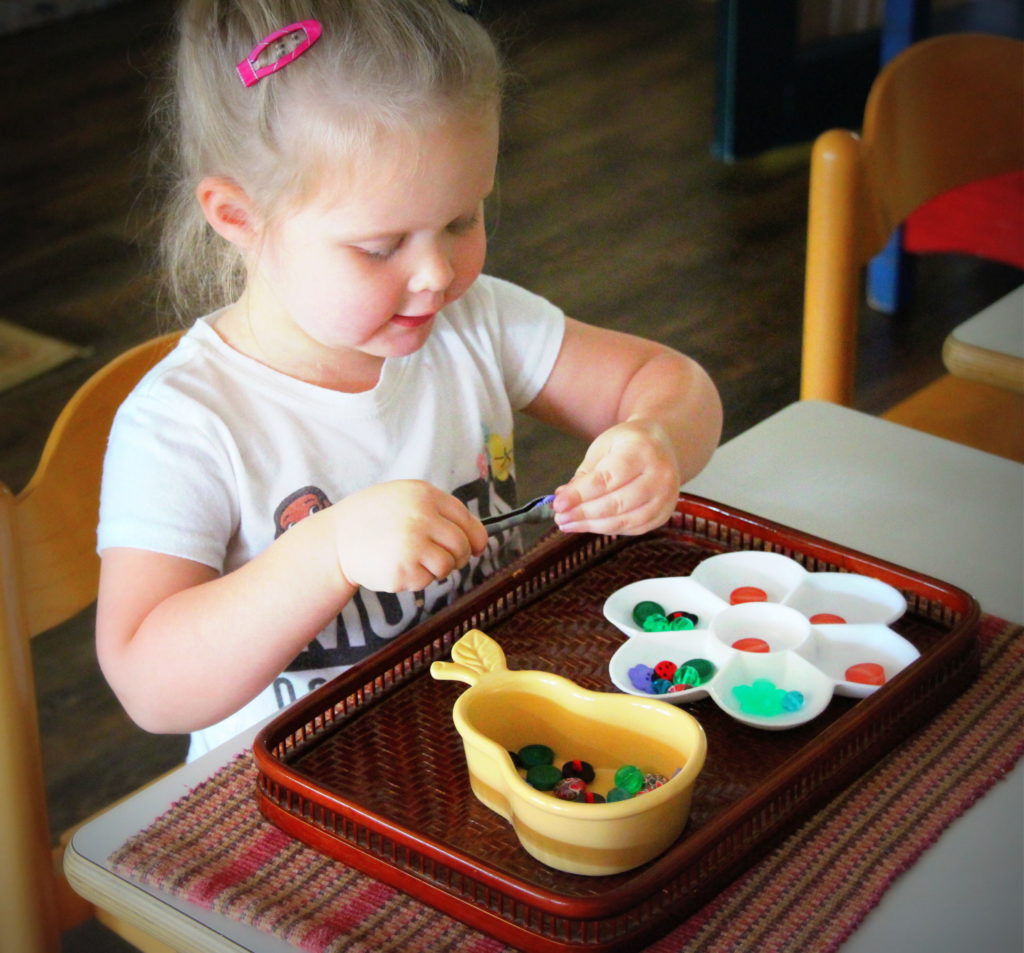
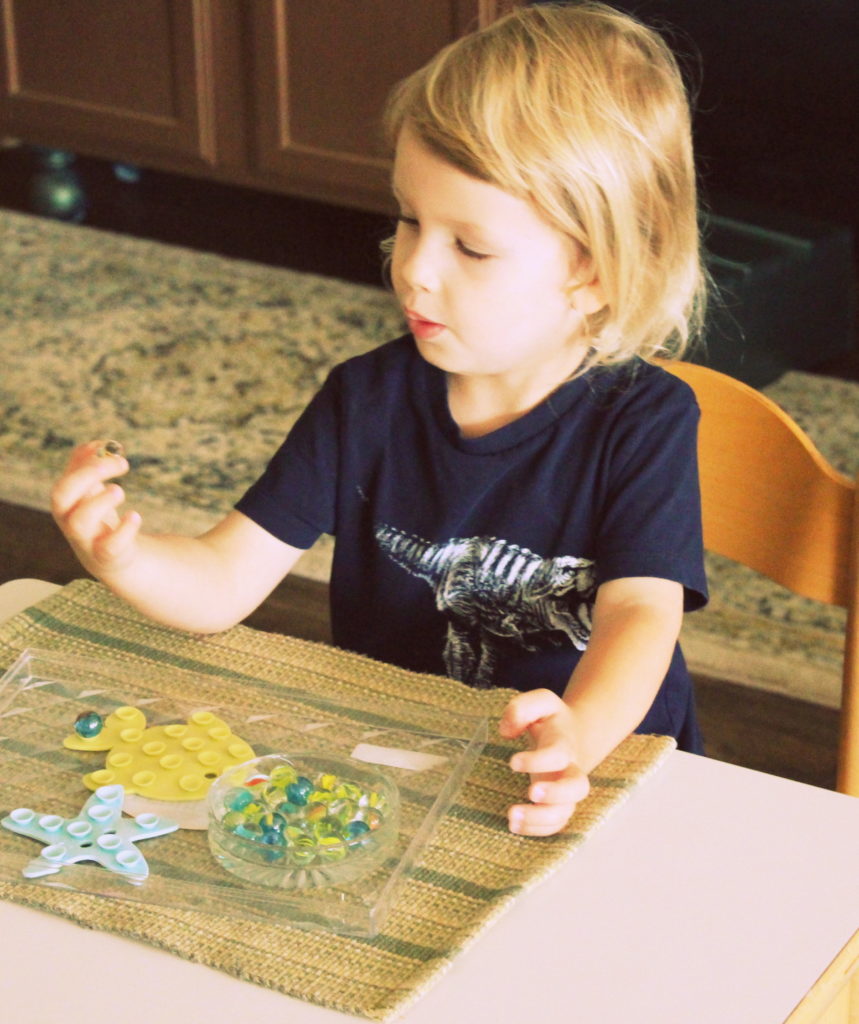




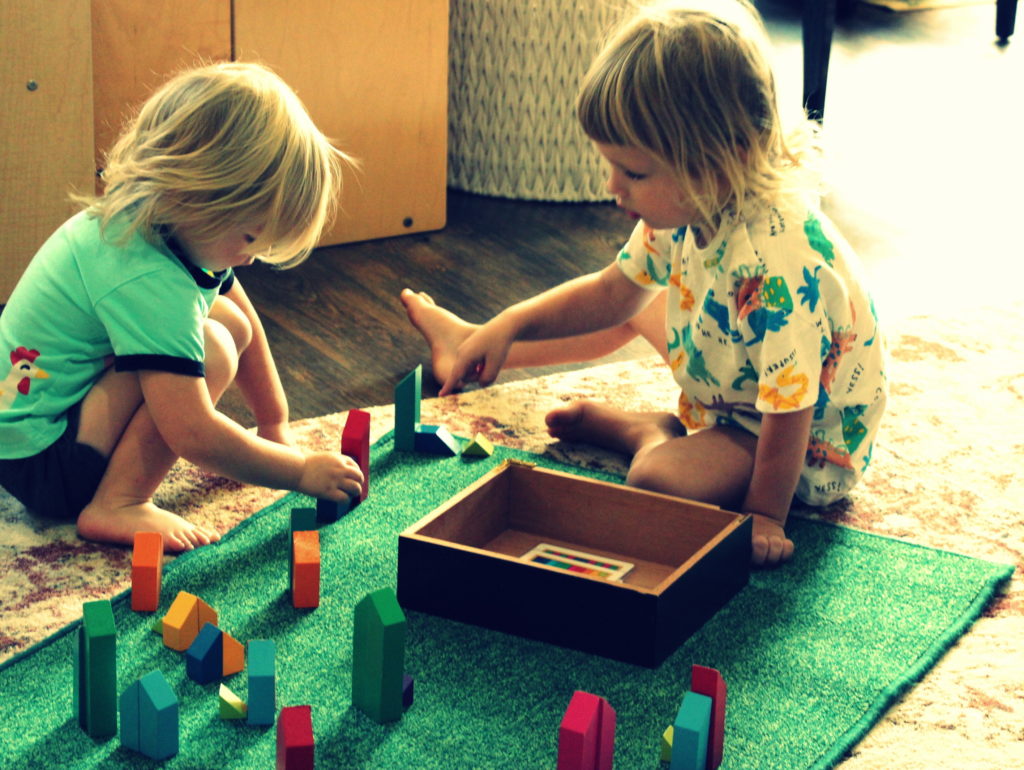

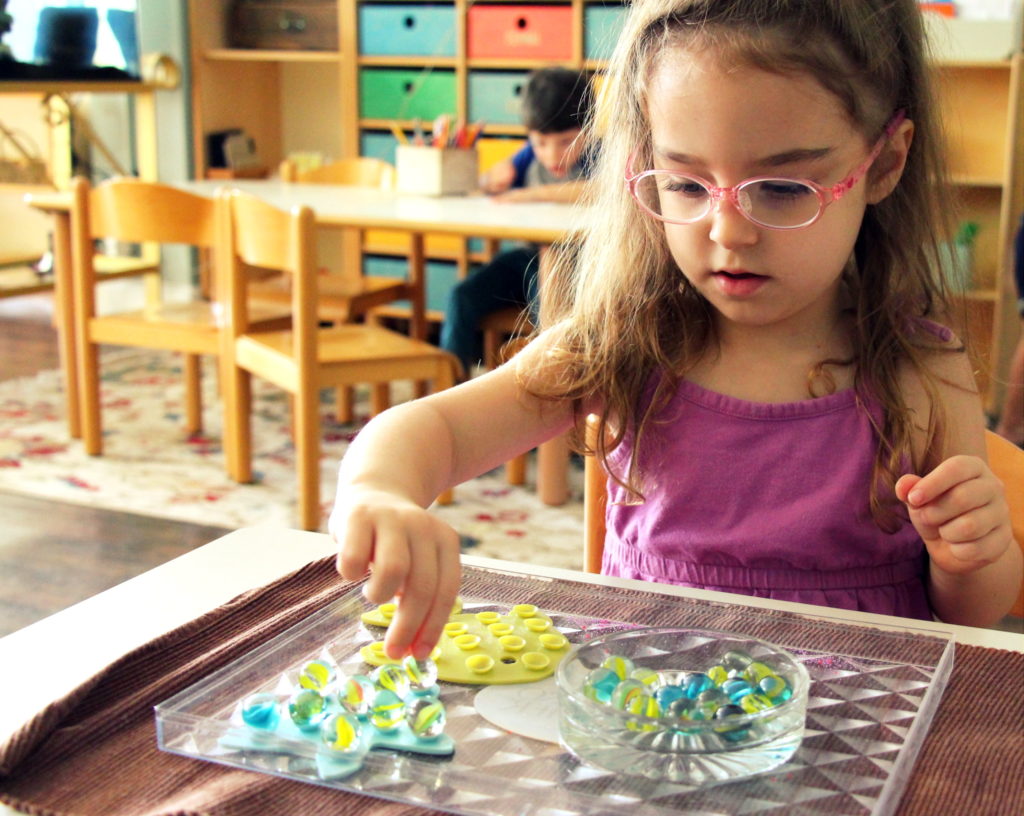
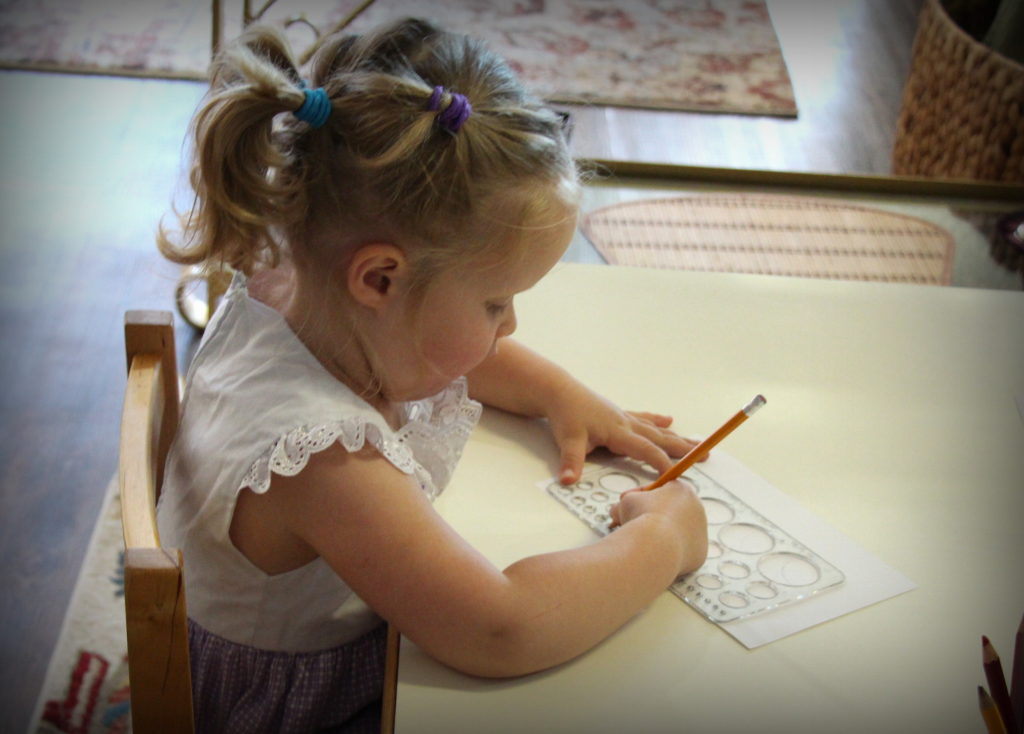
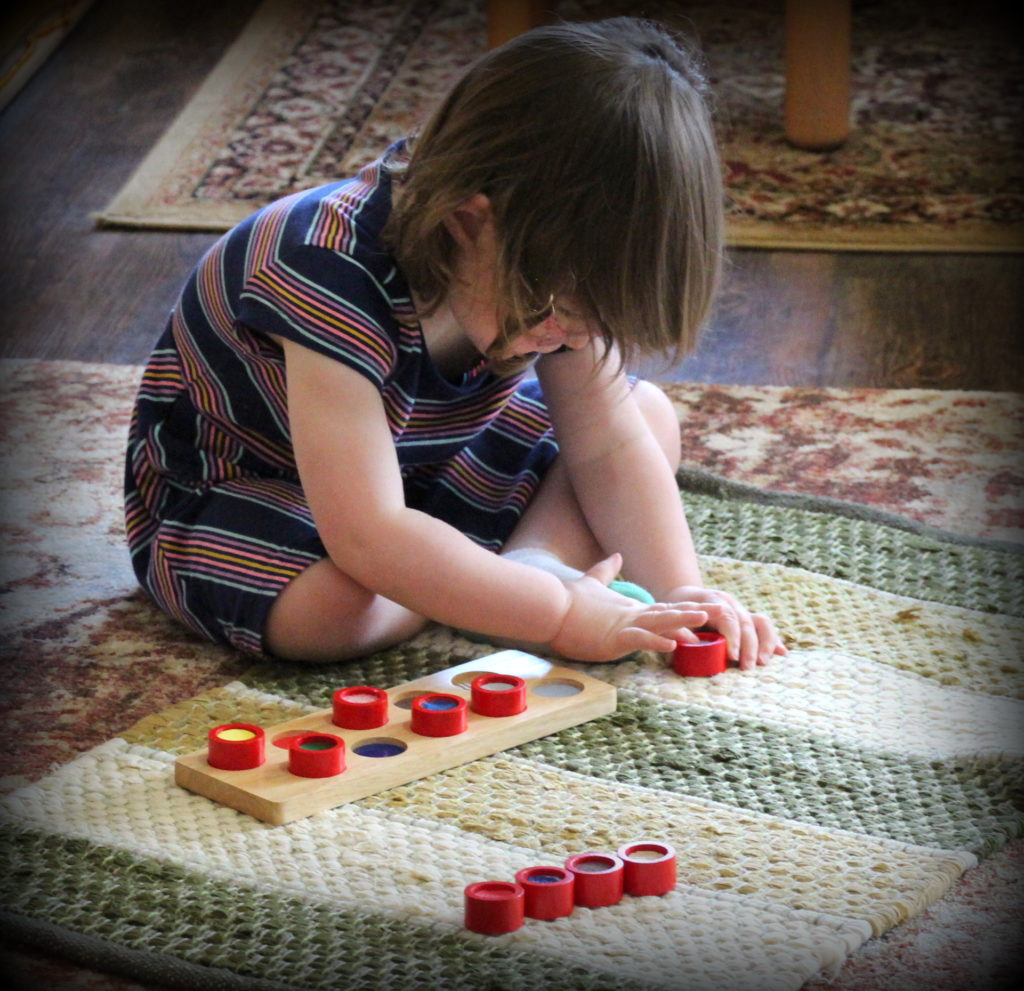

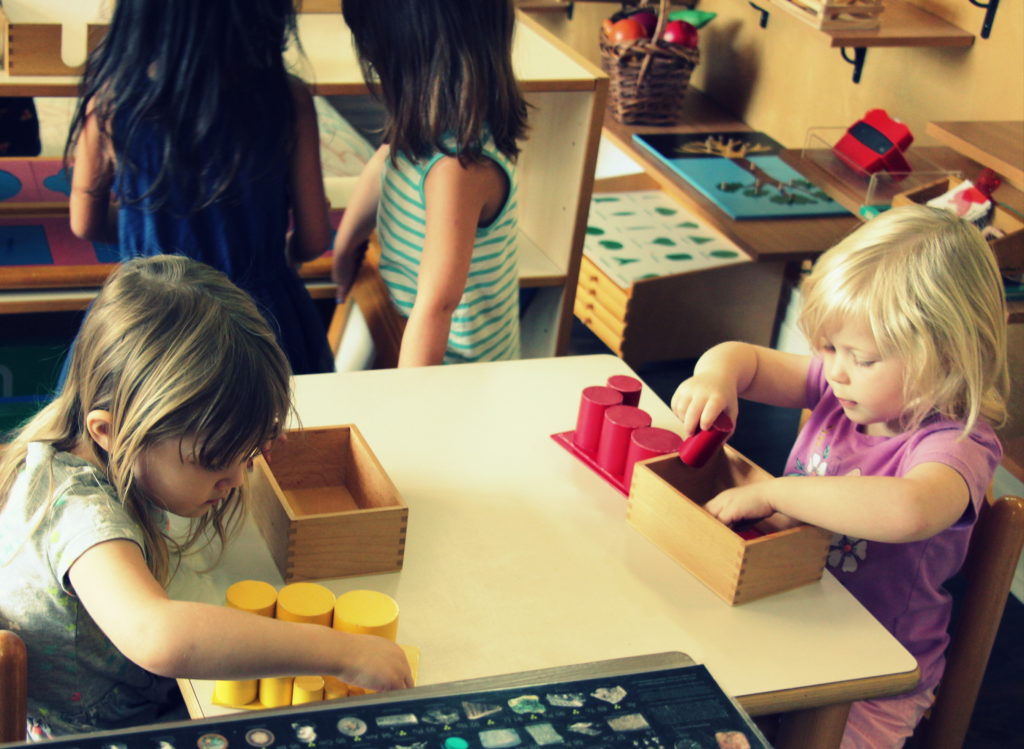
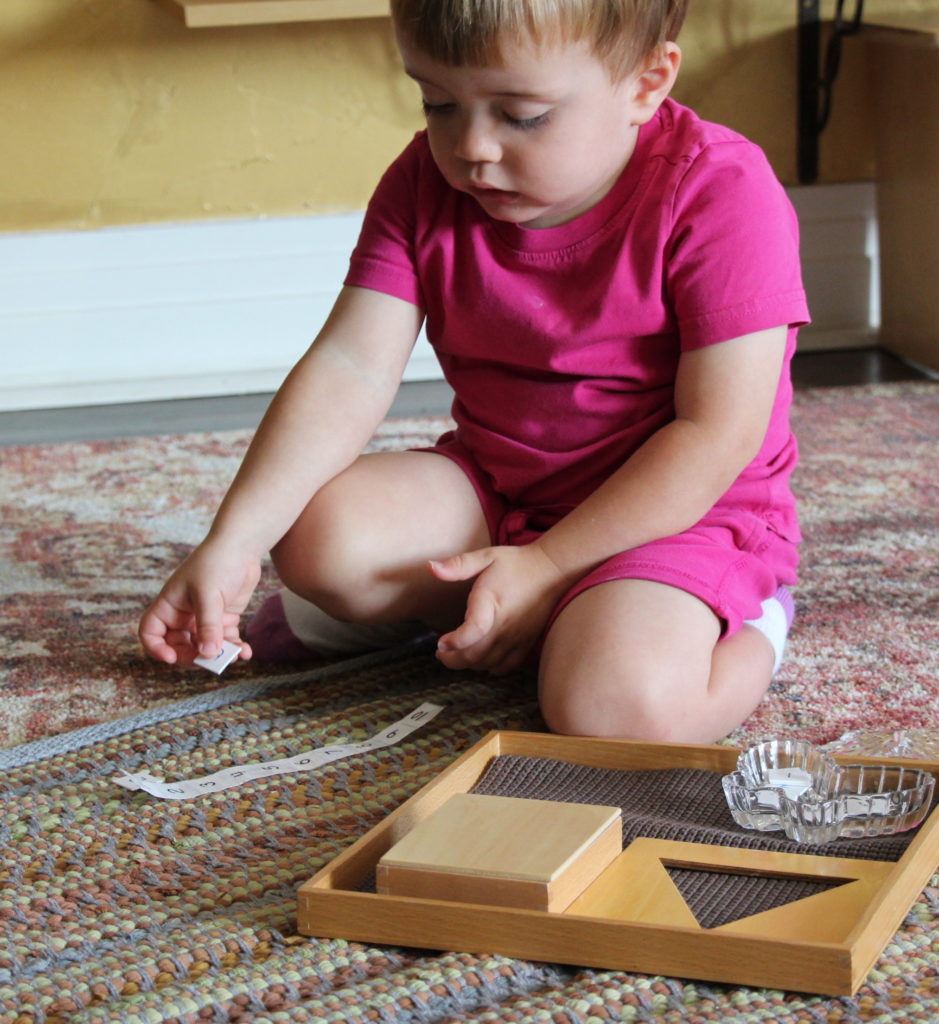

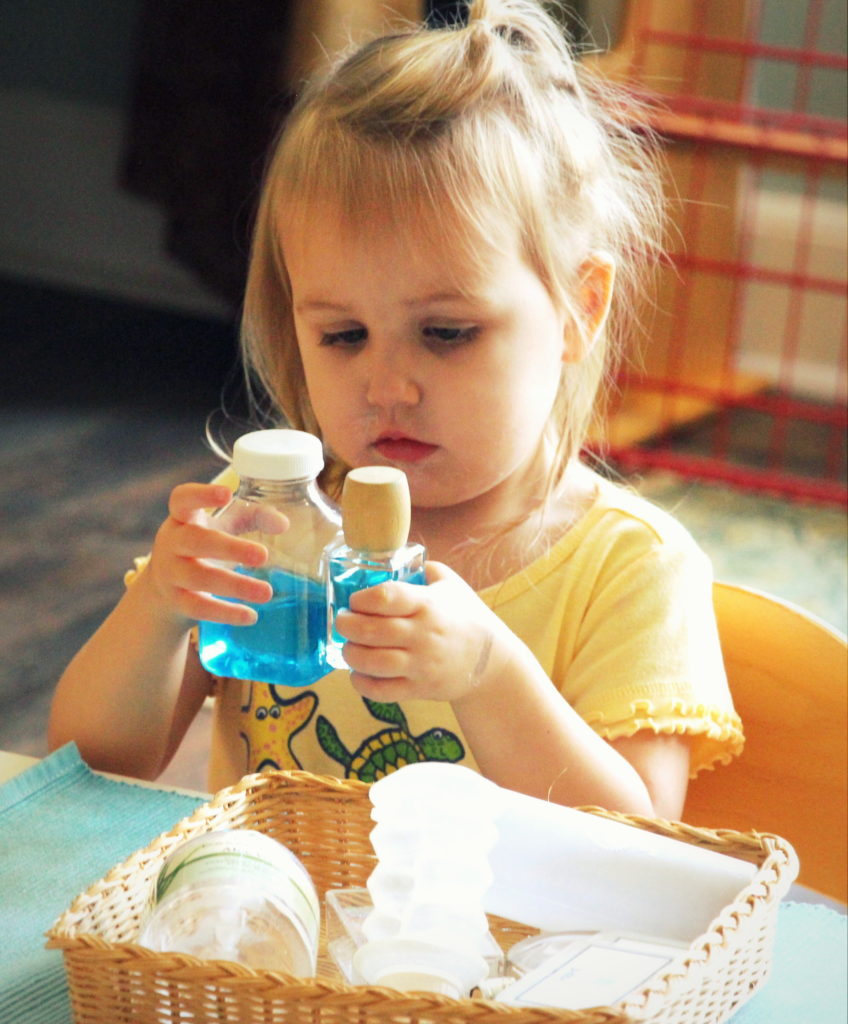




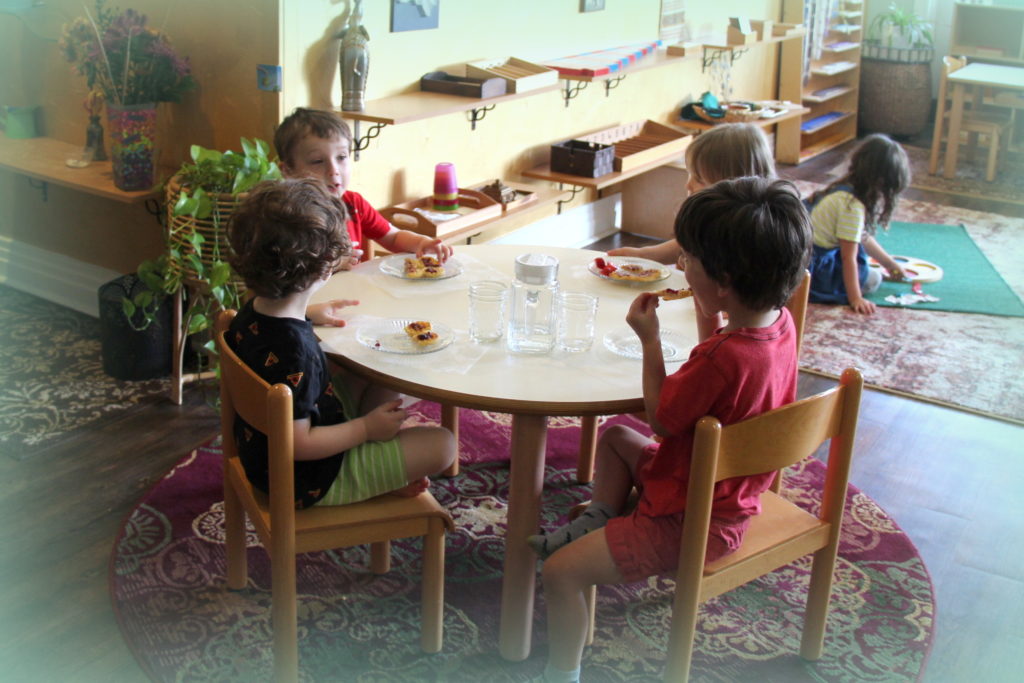


Daniel has definitely echoed some of these concepts at home! When he thinks he is being helpful he asks, “is this helping the family?” He has also been very interested in the weather and planets the last few months, and has amassed a collection of acorns in our yard. And just this week he asked me what I did at work. So while he might not be as open about sharing directly, he is giving us many hints of how much he is learning and enjoying class with you all. Thank you!
So funny about the acorns, and it’s so good to hear about his thoughtful questions and comments! Thanks so much for sharing. It’s very rewarding to hear such stories.
Such a beautiful, peaceful and creative environment! Thank you so much for the post!
Glad you think so, and you’re so welcome!
Thank you all for the thoughtful work you do with our kids. This blog post is lovely and gave me some focused time to reflect on my children and their development during a busy day.
Awe, thank you, Susan! It has been a pleasure to get to work with all of your lovely children. So glad this post was insightful!
Thank you for a wonderful blog – I really enjoyed reading and looking at all the amazing pictures of the kiddos hard at work – Cy, of course, gives his own explanation of the pictures – most of his explanations are verbatim from your description of the lesson. Glad to see he’s paying attention 🙂
That’s so great that Cyrus was able to reflect on the lessons with you! He’s a smart one 🙂